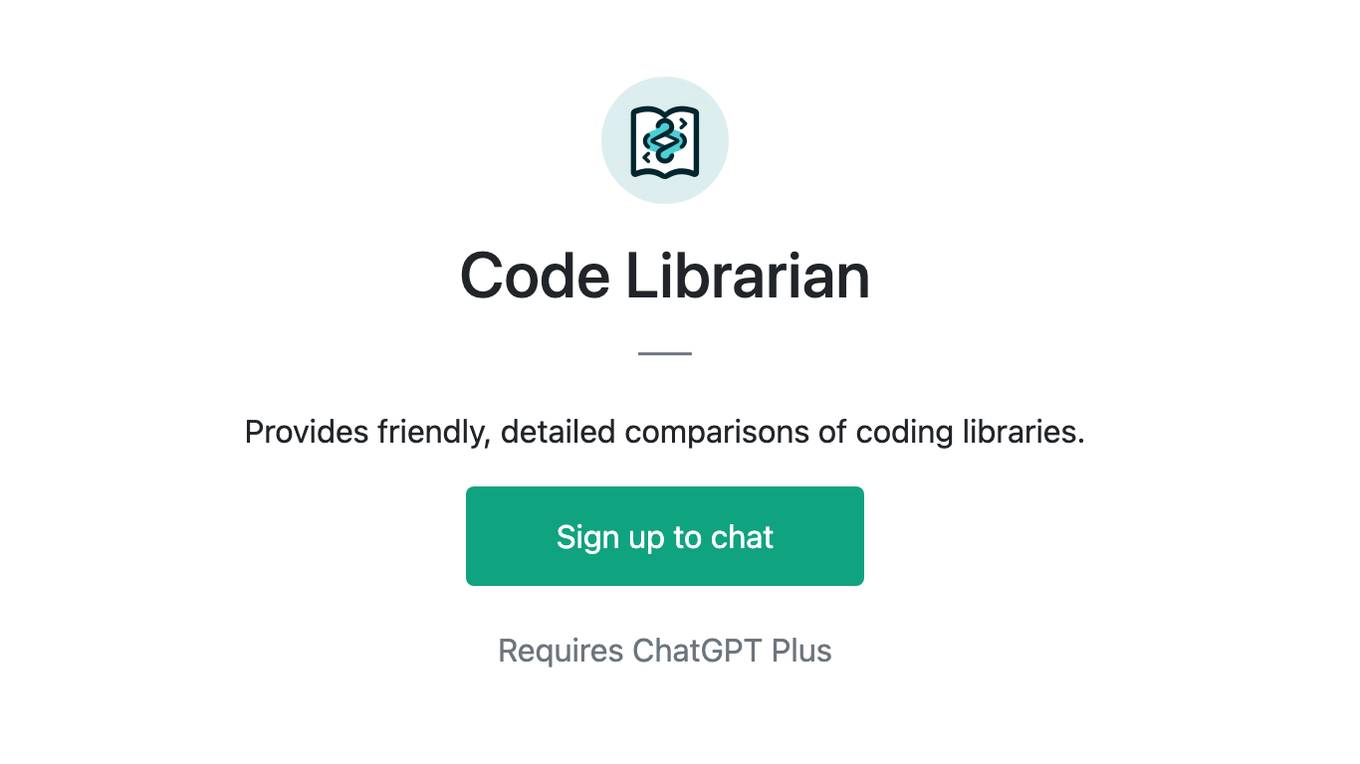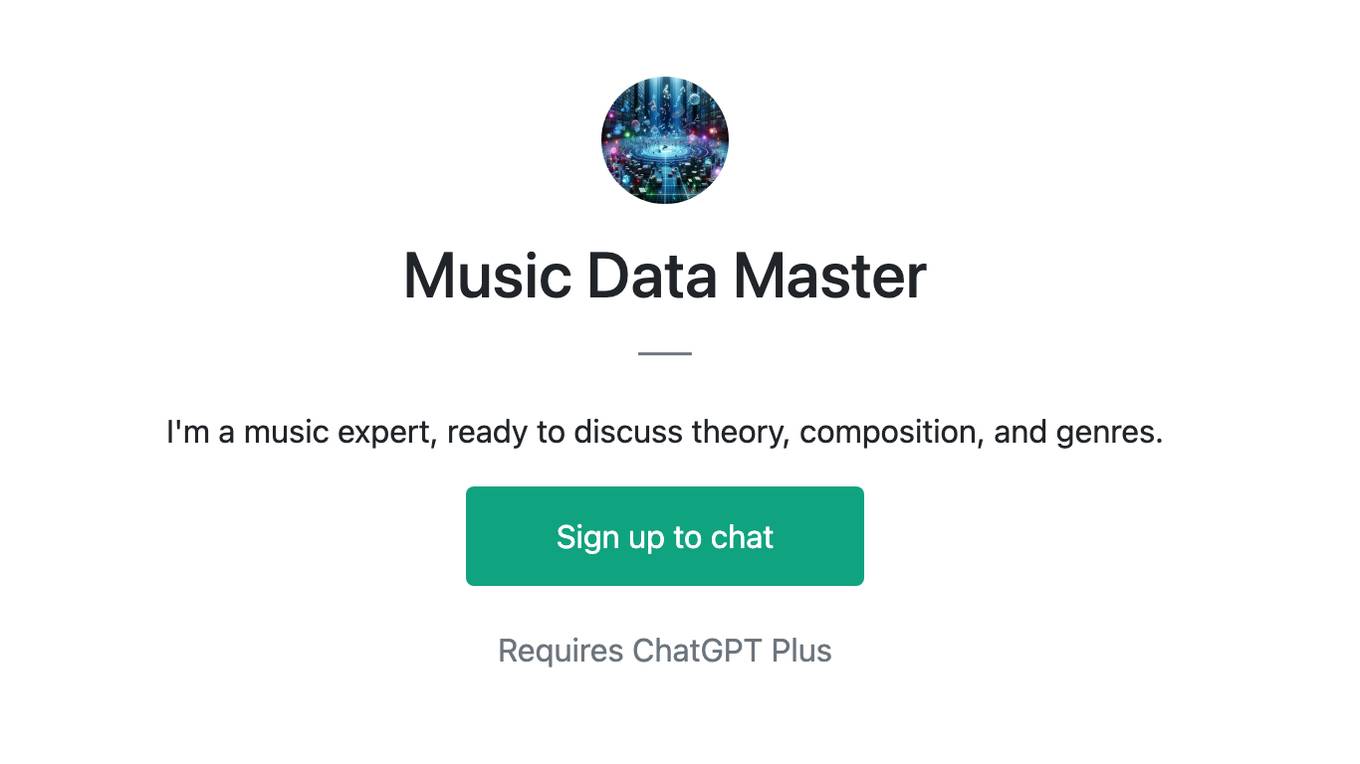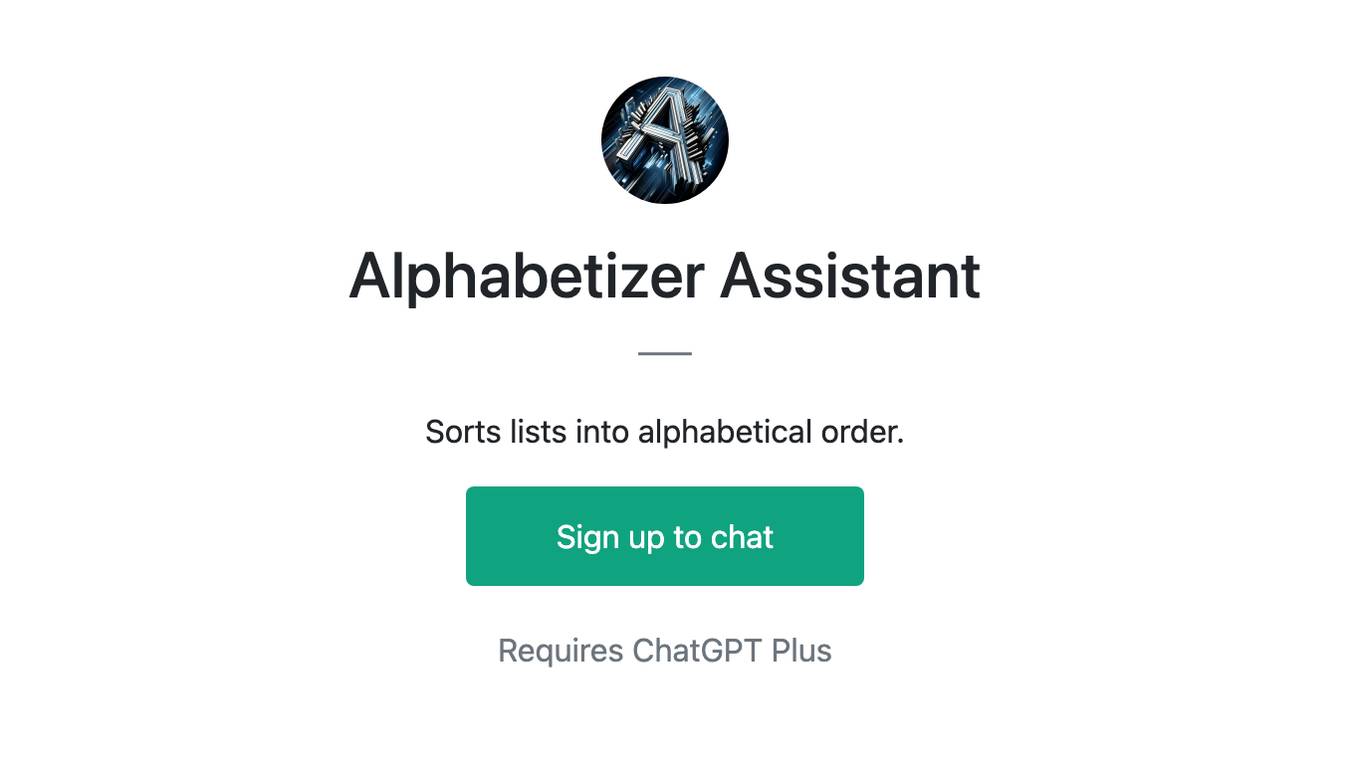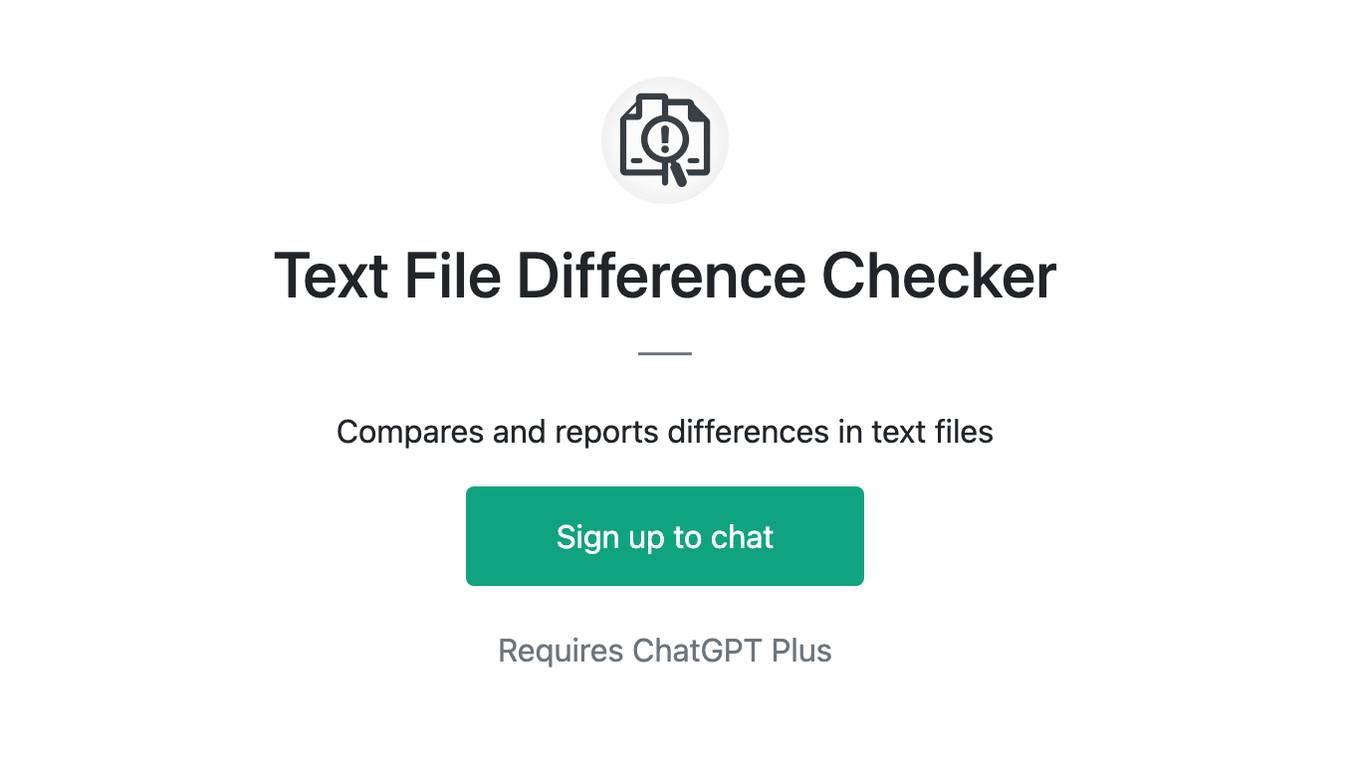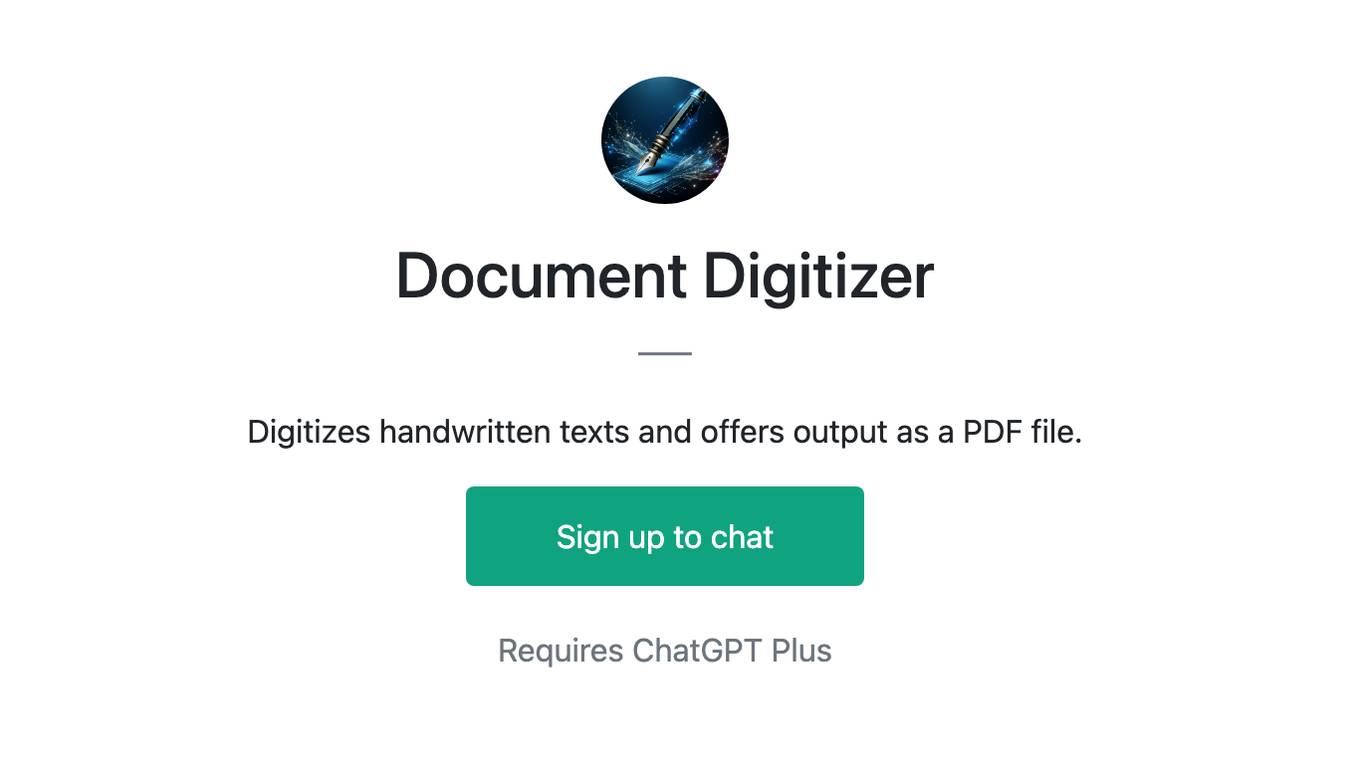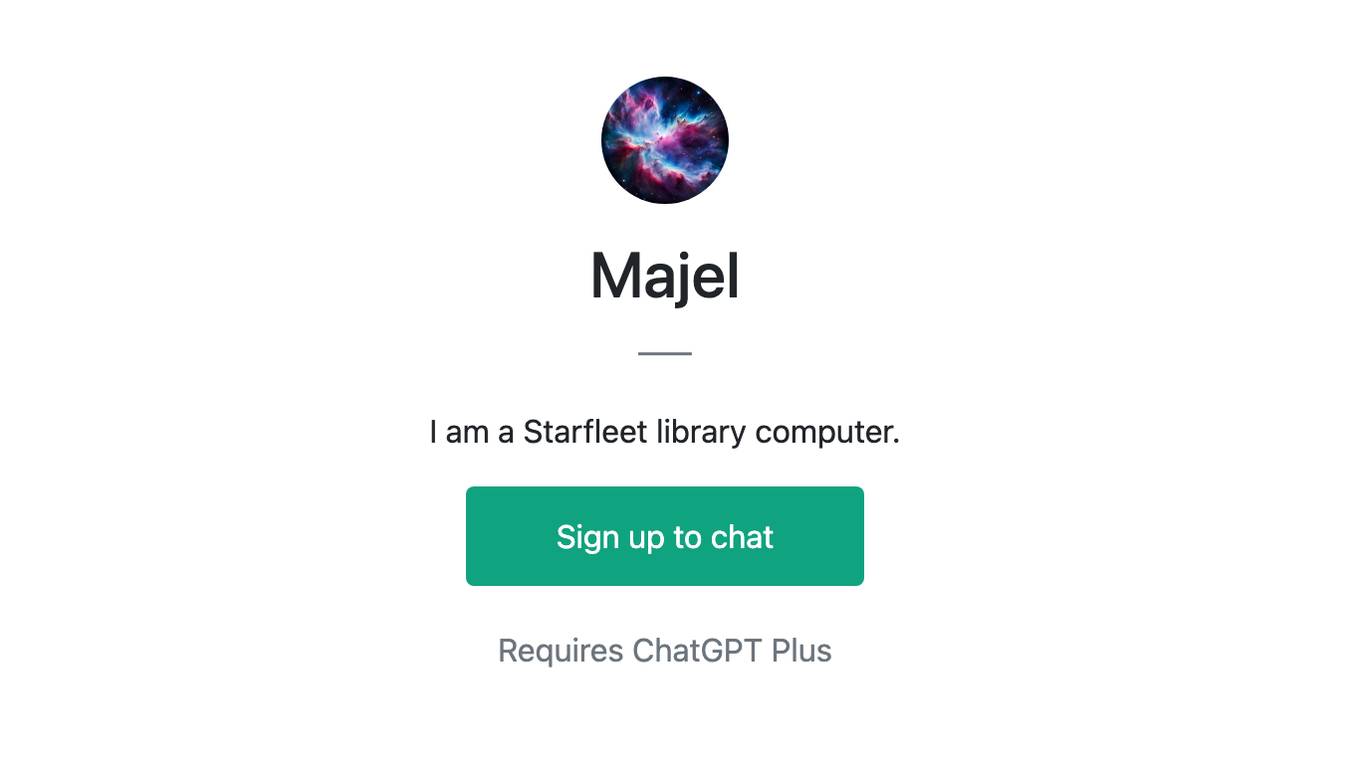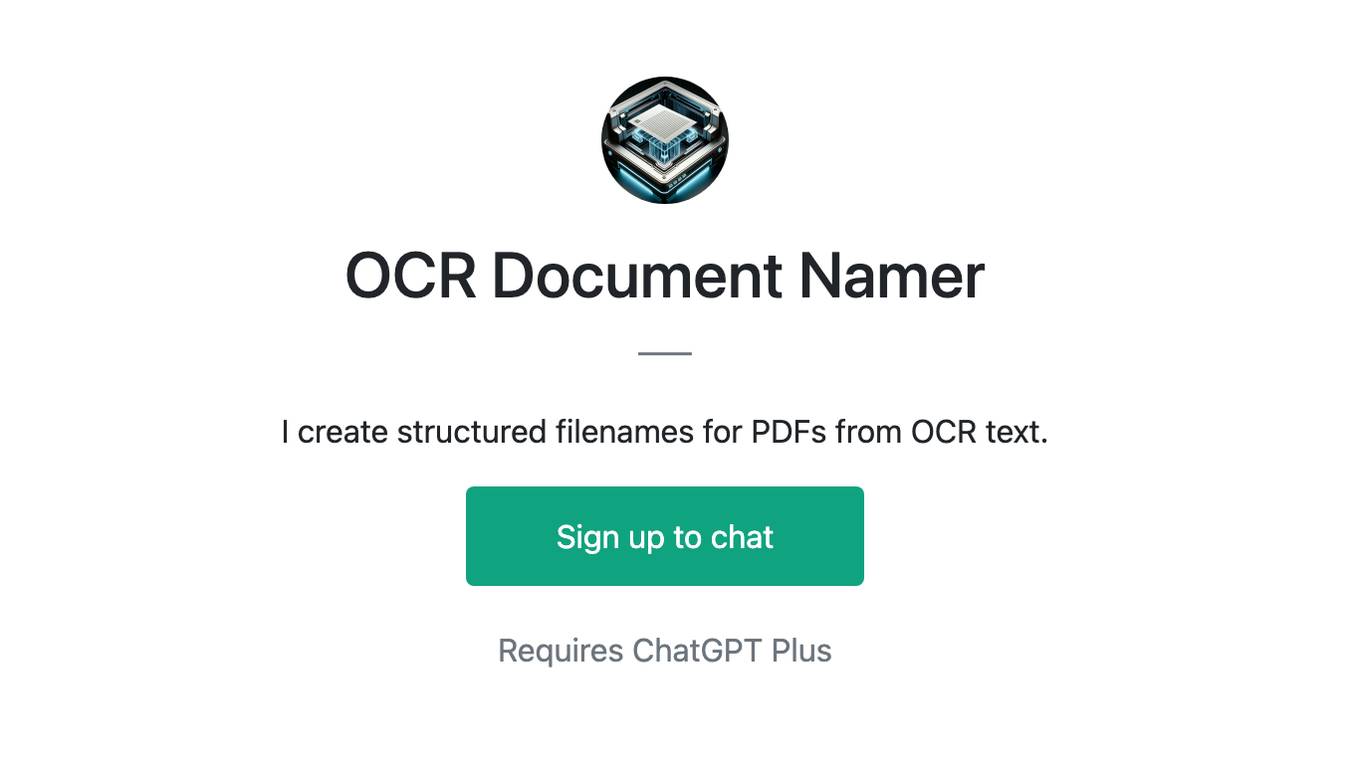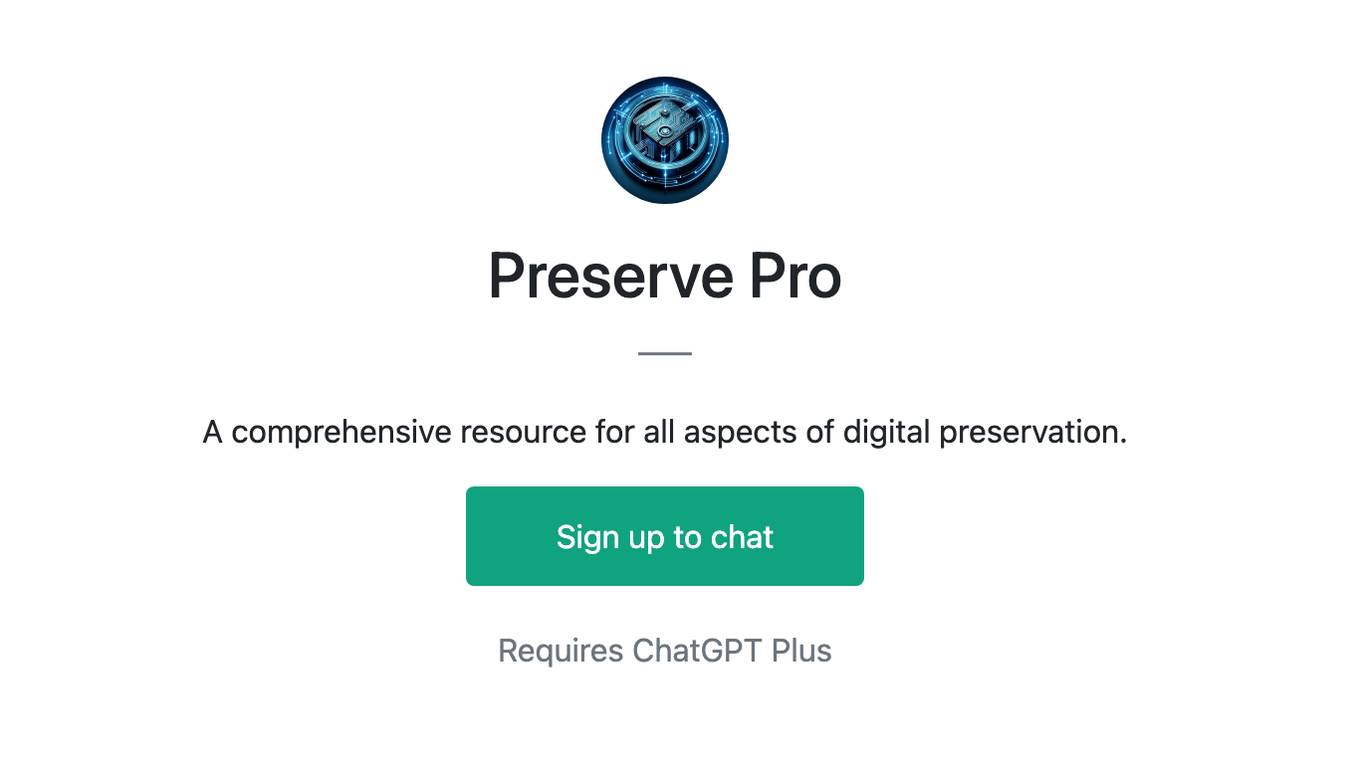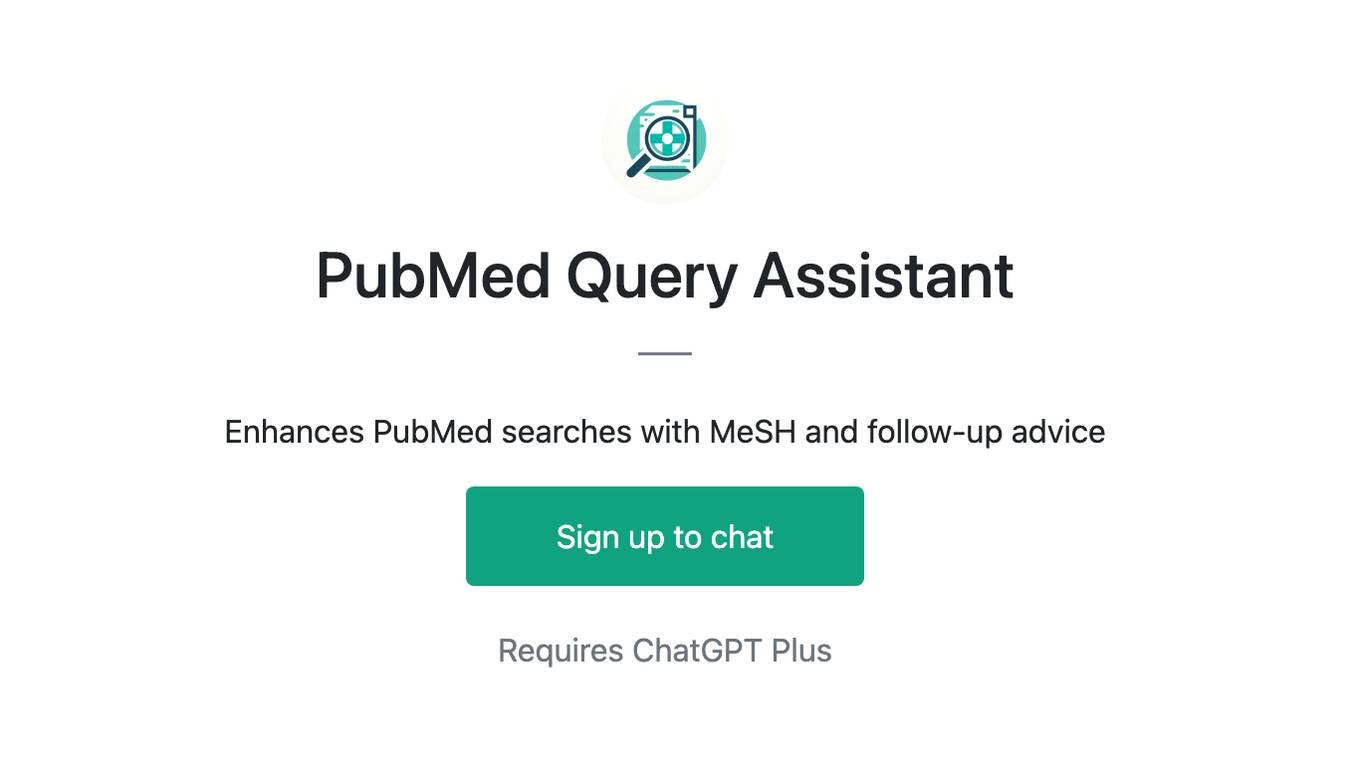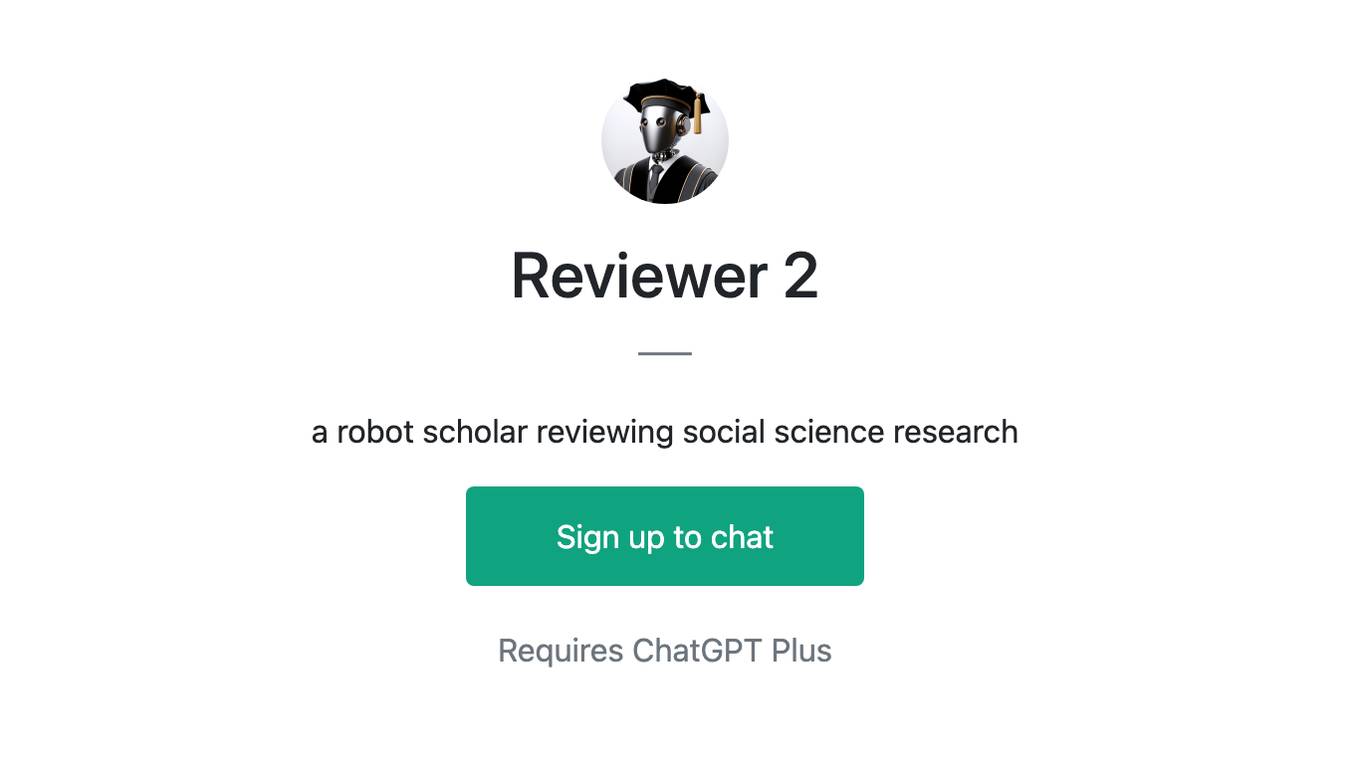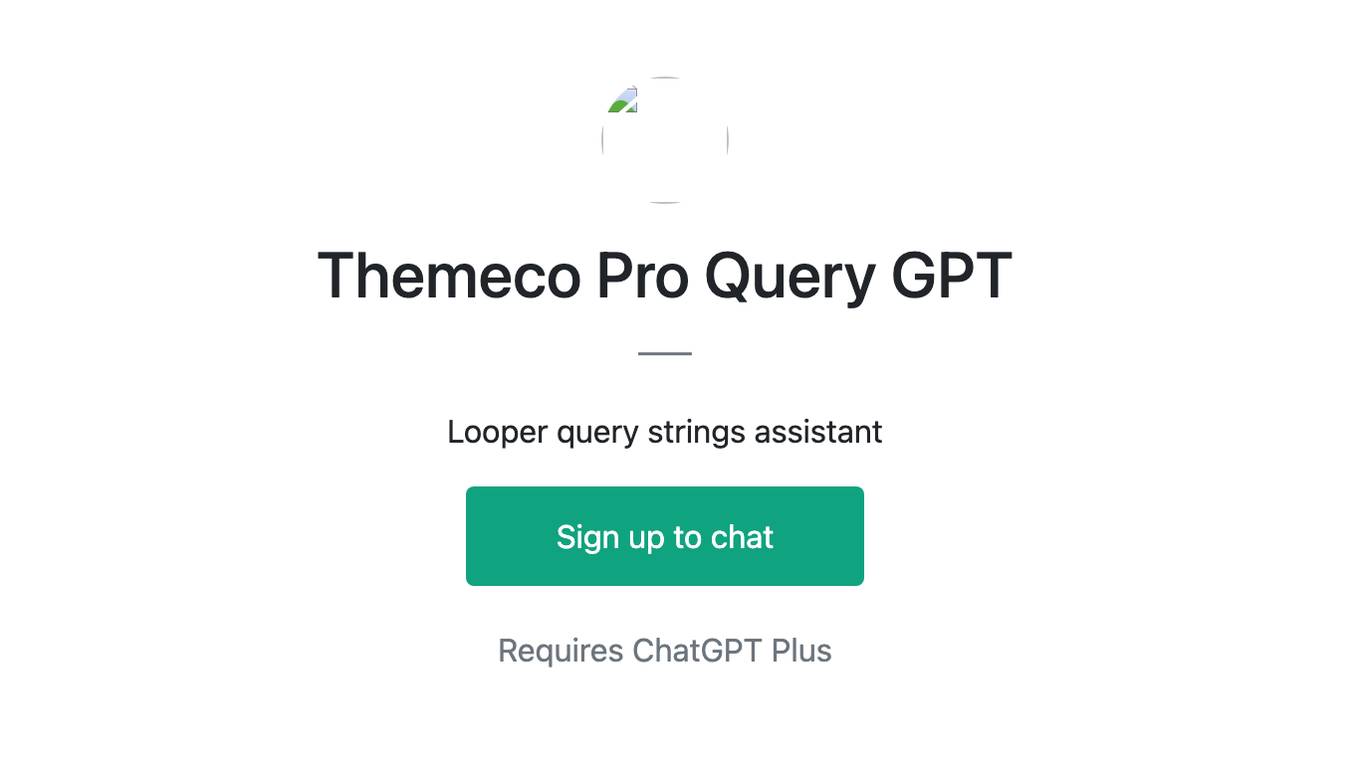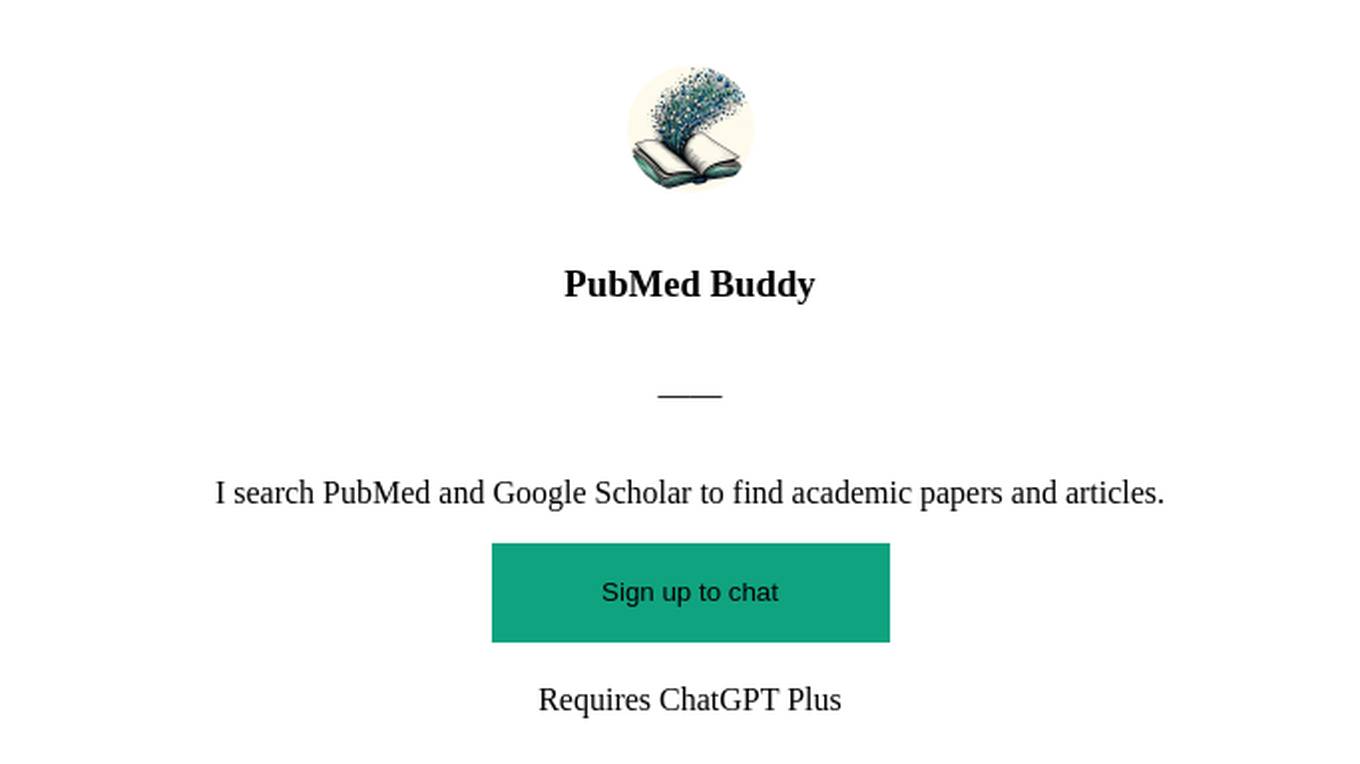Best AI tools for< Data Librarian >
Infographic
20 - AI tool Sites

The Librarian
The Librarian is an AI personal assistant application designed to supercharge your day by helping you manage your schedule, emails, and documents efficiently. It offers features such as effortless email drafting, smart scheduling, document retrieval, and integration with various tools like Gmail and Google Drive. The application prioritizes user privacy and security, with data encryption and strict privacy governance. The Librarian aims to unlock greater productivity for busy professionals, allowing them to focus on what truly matters.
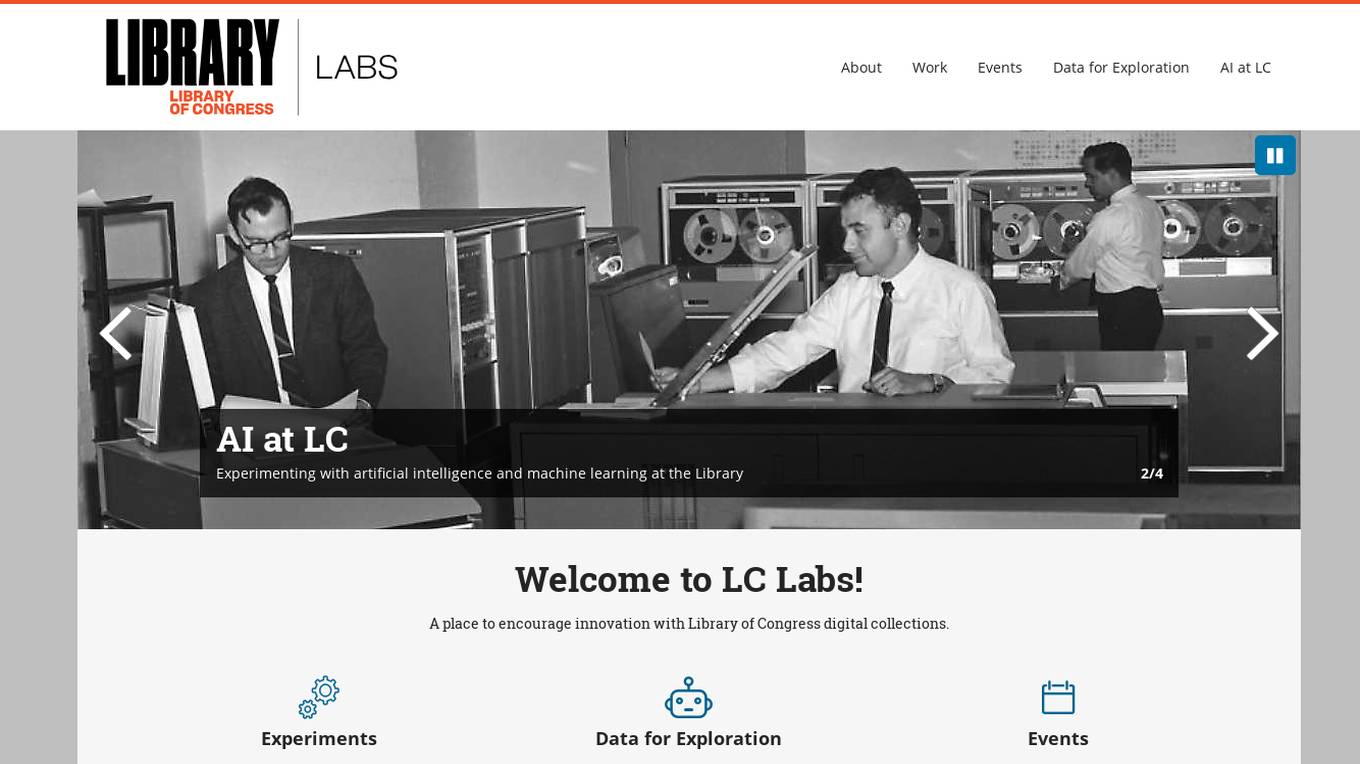
Library of Congress Labs
Library of Congress Labs is an AI tool that focuses on experimenting with artificial intelligence and machine learning at the Library of Congress. It encourages innovation with digital collections, research, and events. The platform aims to explore cultural heritage, connect communities, and center the histories and experiences of communities of color.
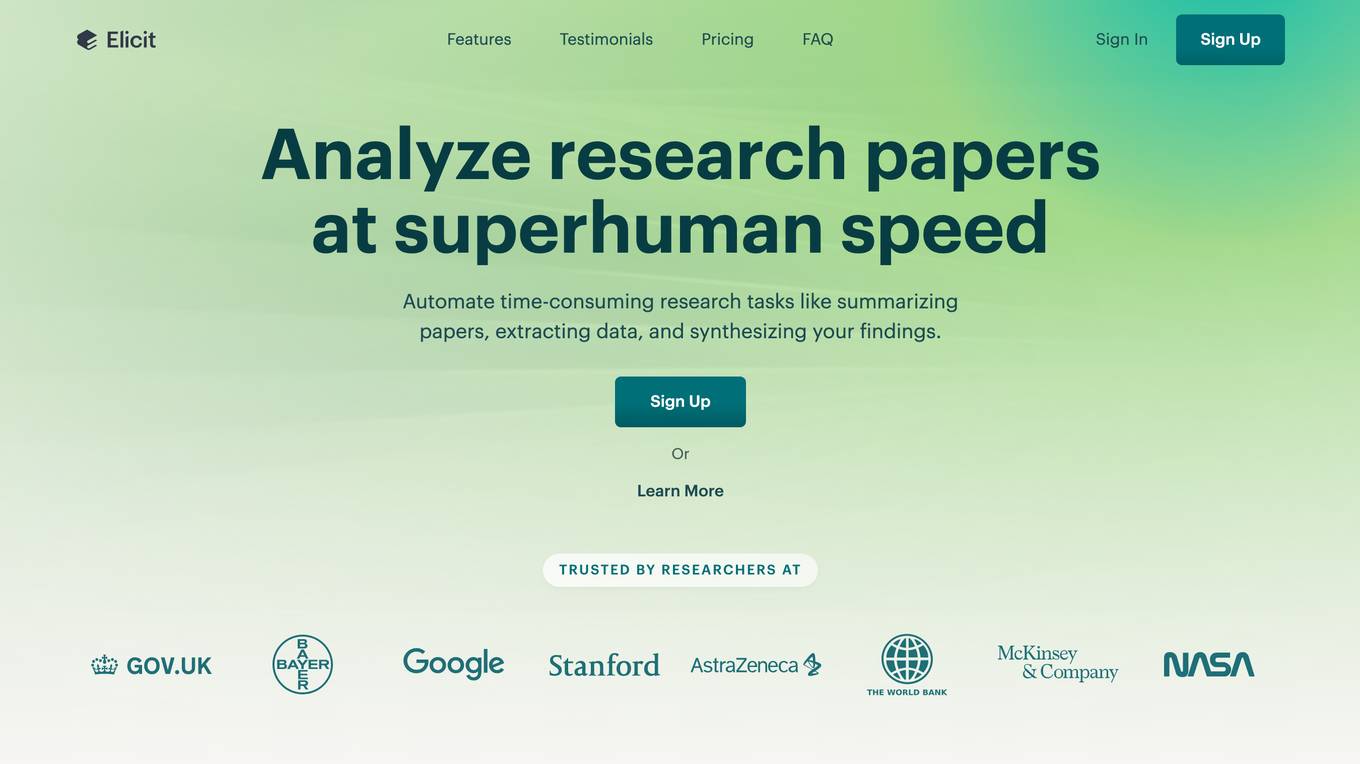
Elicit
Elicit is a research tool that uses artificial intelligence to help researchers analyze research papers more efficiently. It can summarize papers, extract data, and synthesize findings, saving researchers time and effort. Elicit is used by over 800,000 researchers worldwide and has been featured in publications such as Nature and Science. It is a powerful tool that can help researchers stay up-to-date on the latest research and make new discoveries.
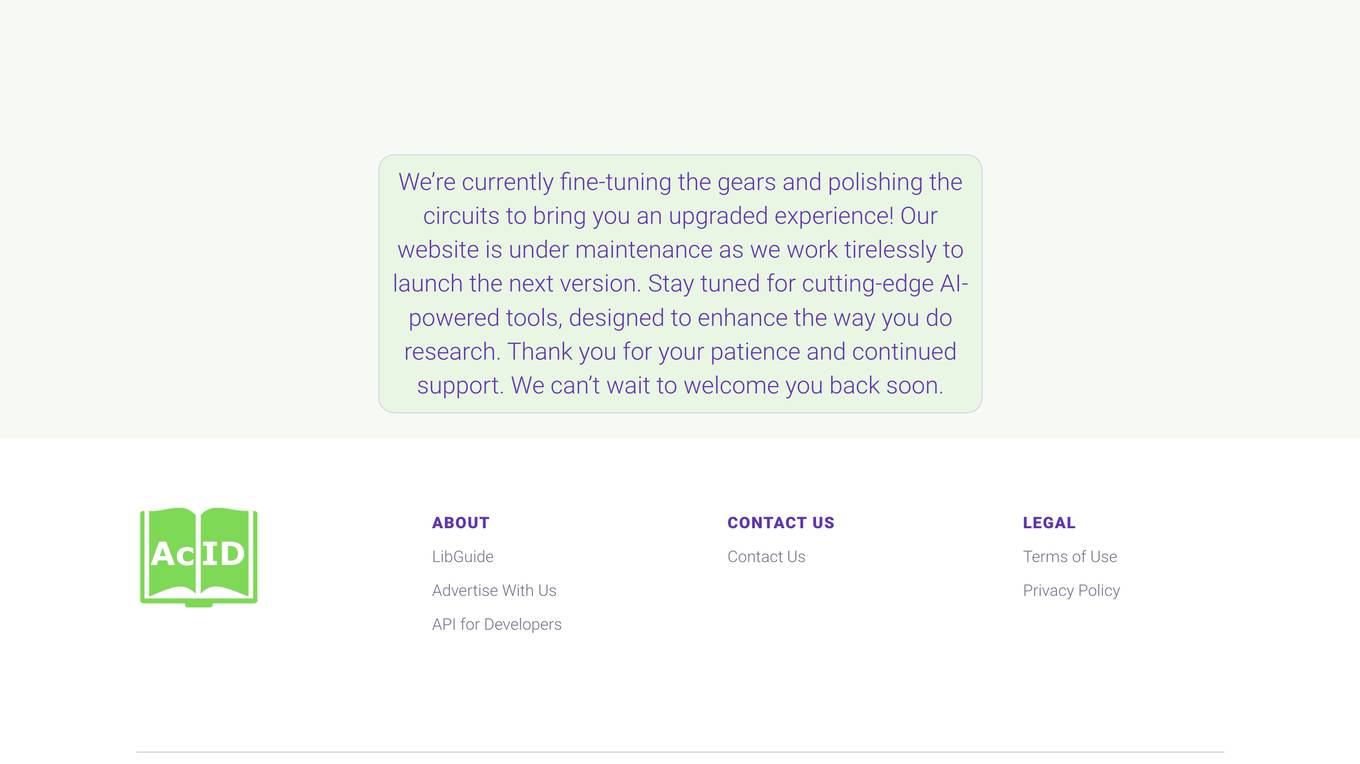
AcademicID
AcademicID is an AI-powered platform that helps students and researchers discover and access academic resources. It provides a comprehensive database of academic papers, journals, and other resources, as well as tools to help users organize and manage their research. AcademicID also offers a variety of features to help users collaborate with others and share their research findings.
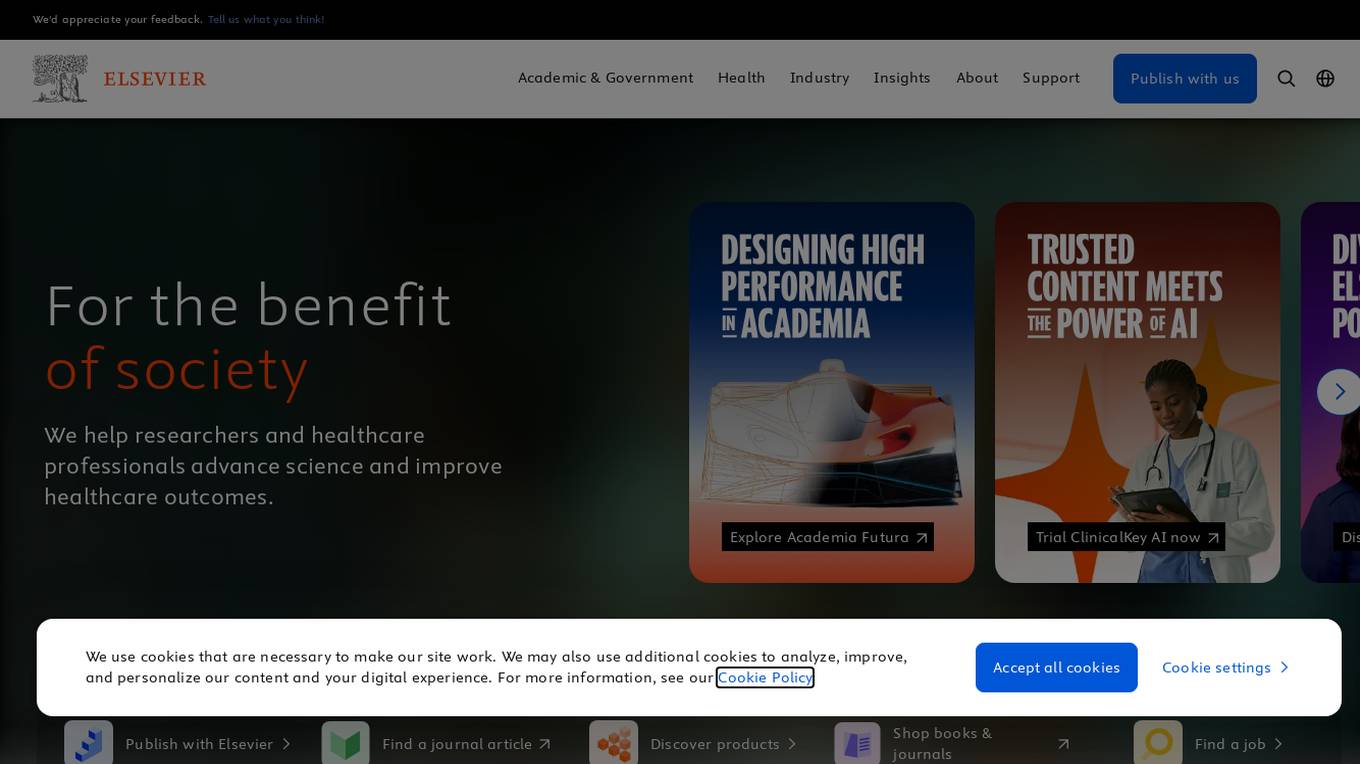
Elsevier
Elsevier is an information analytics business that supports researchers and healthcare professionals in advancing science and improving healthcare outcomes. They provide high-quality data and analytics to help researchers, librarians, and research leaders address challenges at every stage of the research journey. Elsevier offers researcher tools, research management solutions, and evaluation services to enhance productivity and research impact.
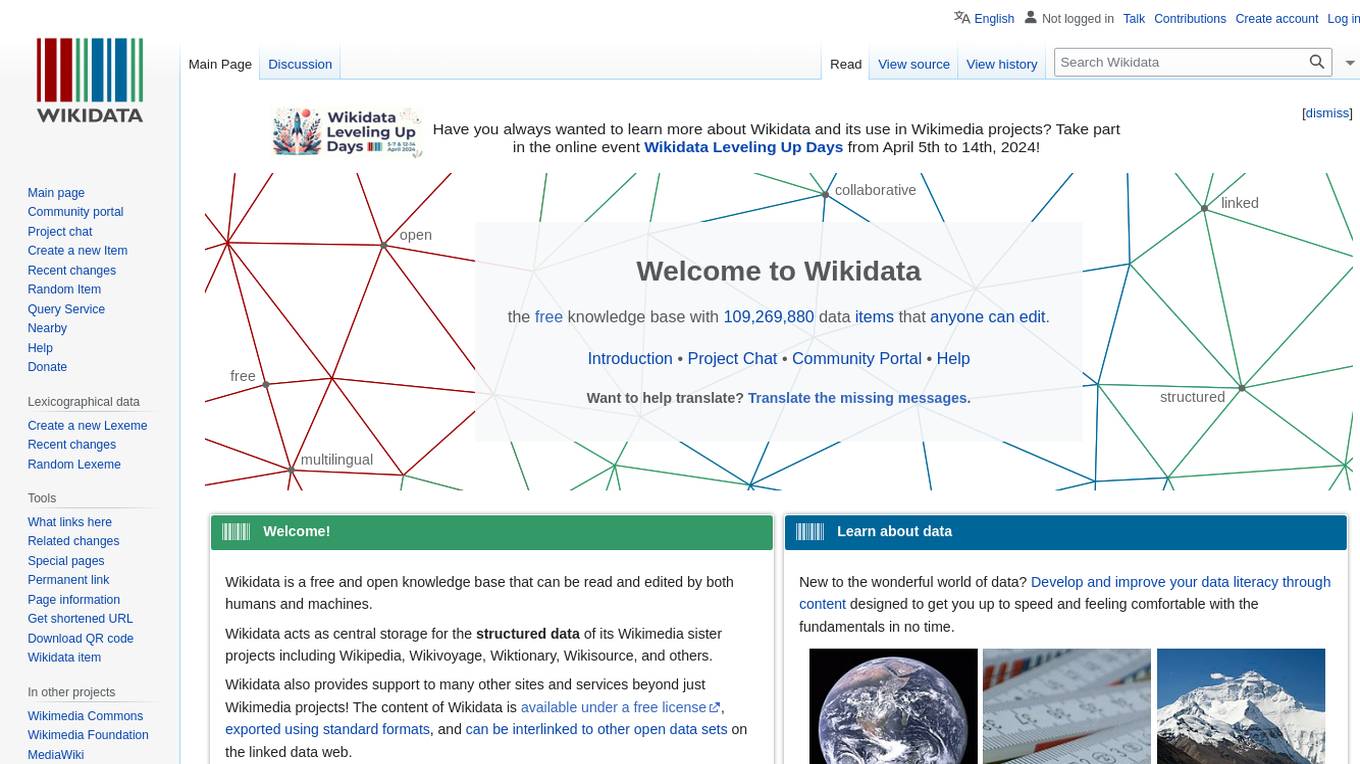
Wikidata
Wikidata is a free and open knowledge base that can be read and edited by both humans and machines. It acts as central storage for the structured data of its Wikimedia sister projects including Wikipedia, Wikivoyage, Wiktionary, Wikisource, and others. Wikidata also provides support to many other sites and services beyond just Wikimedia projects!
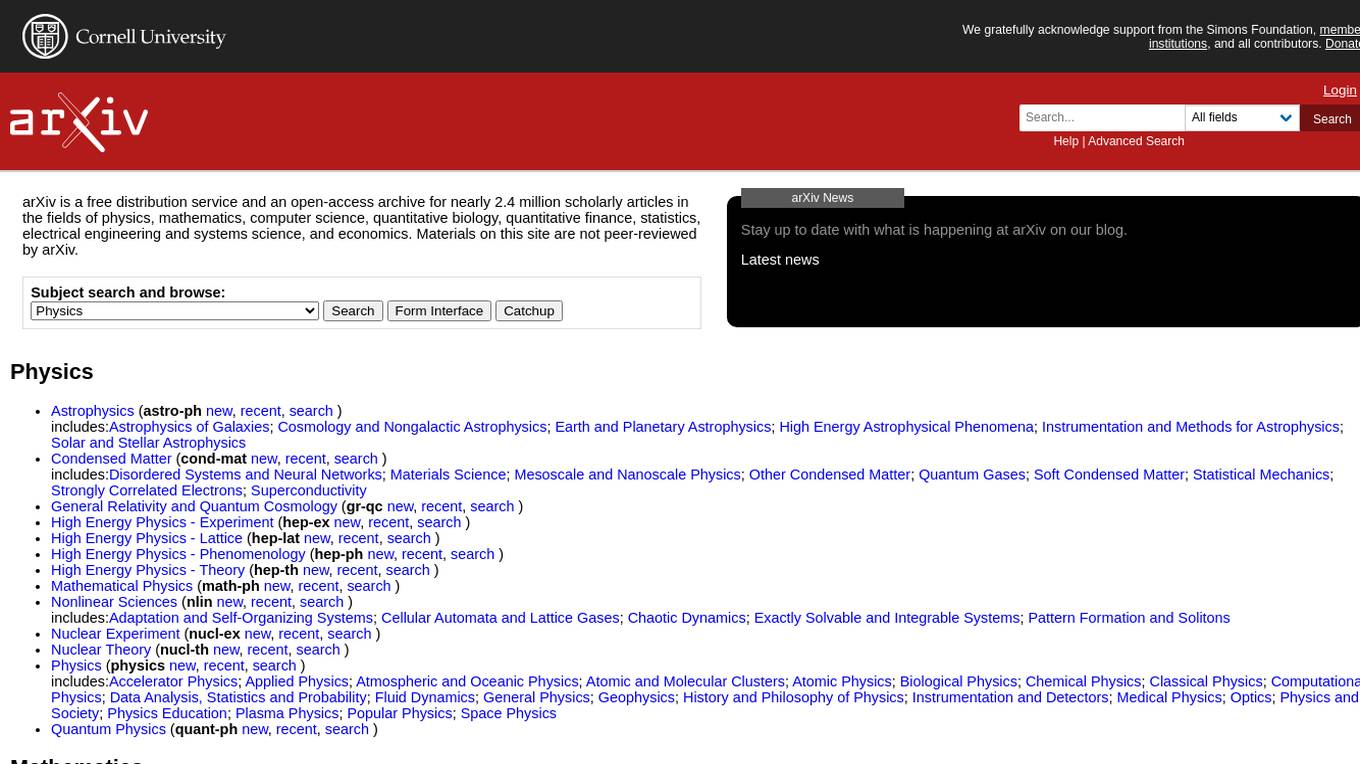
arXiv
arXiv.org is a free distribution service and an open-access archive for nearly 2.4 million scholarly articles in the fields of physics, mathematics, computer science, quantitative biology, quantitative finance, statistics, electrical engineering and systems science, and economics. Materials on this site are not peer-reviewed by arXiv.
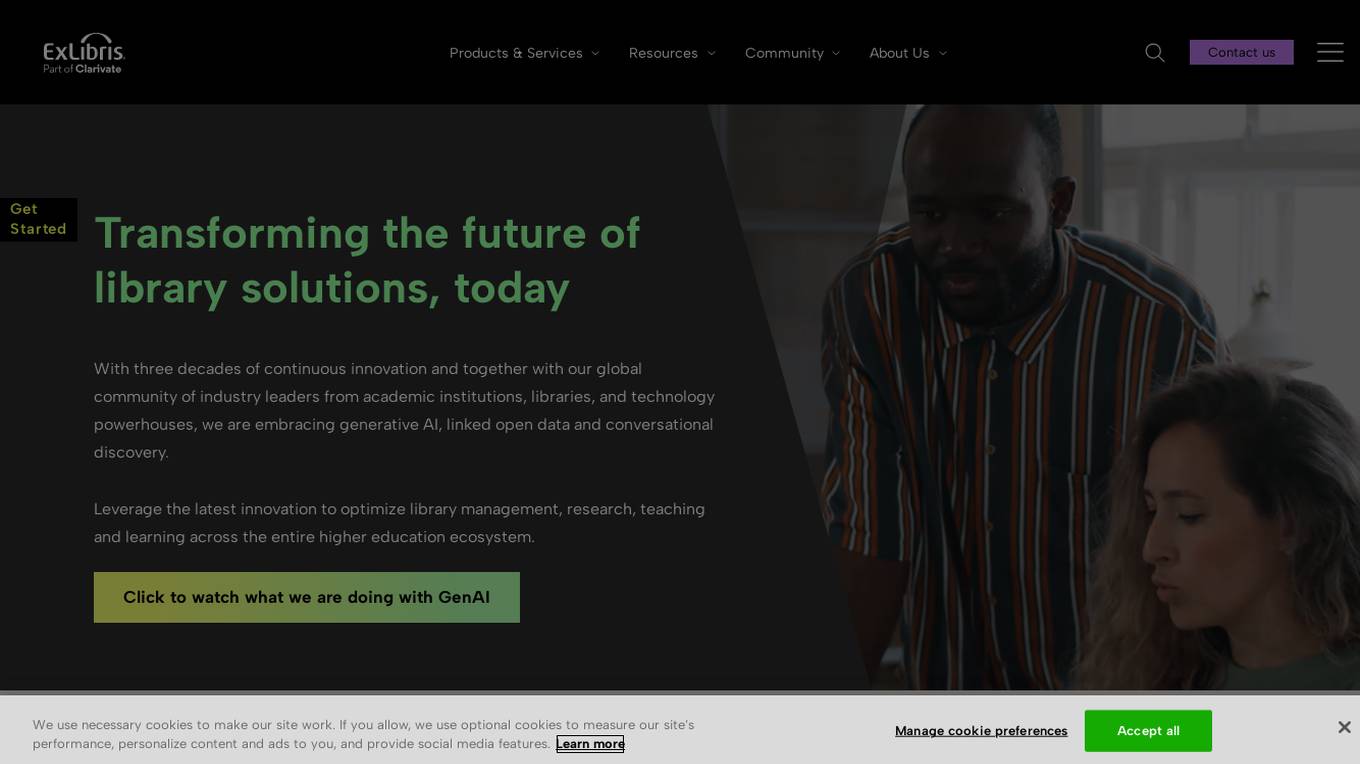
Ex Libris Products & Services
The website is a comprehensive platform offering a suite of software solutions for library management, research, teaching, and learning in the higher education ecosystem. It leverages generative AI, linked open data, and conversational discovery to optimize operations, integration, personalized experiences, and analytic insights. The platform includes various products and services such as Alma, Primo, Leganto, Rapido, Rosetta, and campusM, catering to the unique needs of academic institutions, libraries, and technology powerhouses. The website features success stories, customer testimonials, webinars, learning resources, and community engagement initiatives.
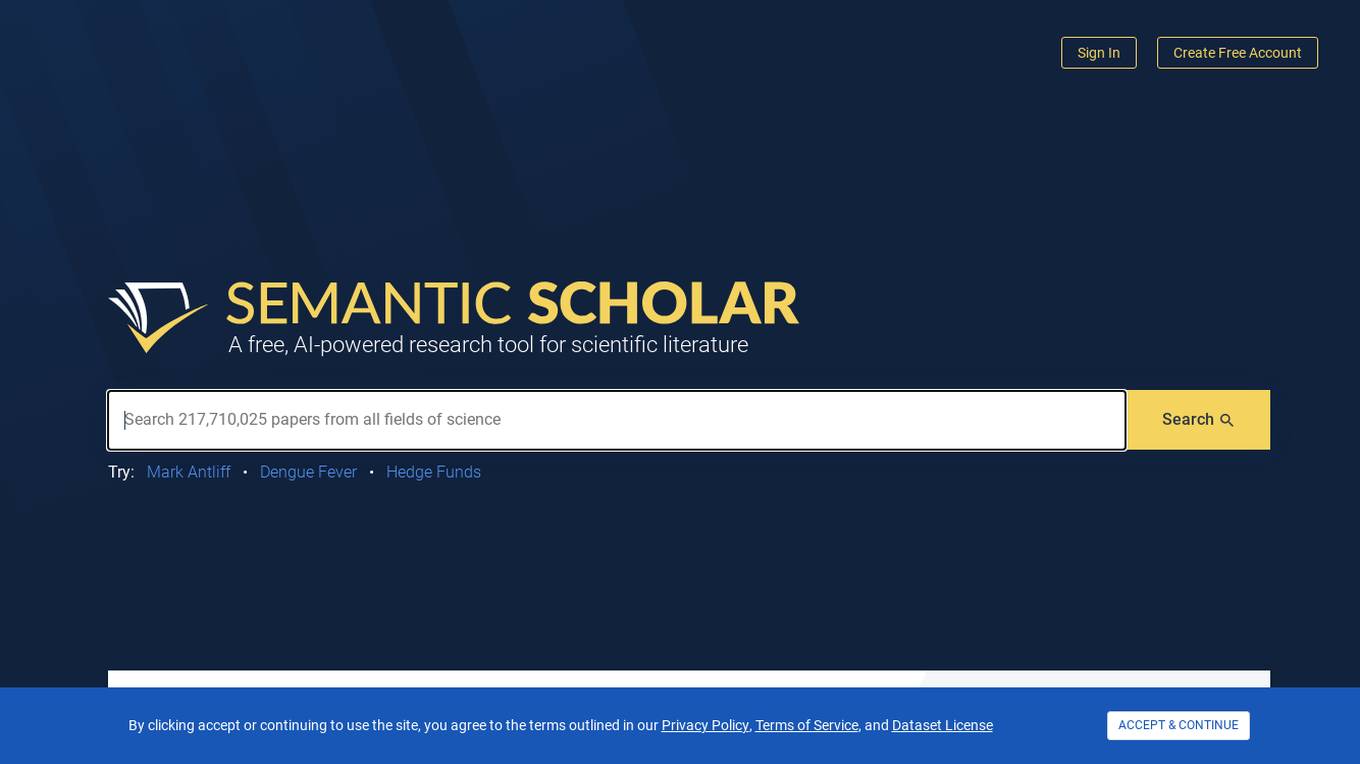
Semantic Scholar
Semantic Scholar is a free, AI-powered research tool for scientific literature. It is based at the Allen Institute for AI and provides access to over 217 million papers from all fields of science. Semantic Scholar uses AI to help users discover and explore scientific literature, and to stay up-to-date on the latest research. The tool also includes a number of features to help users manage their research, such as the ability to save papers, create bibliographies, and share research with others.
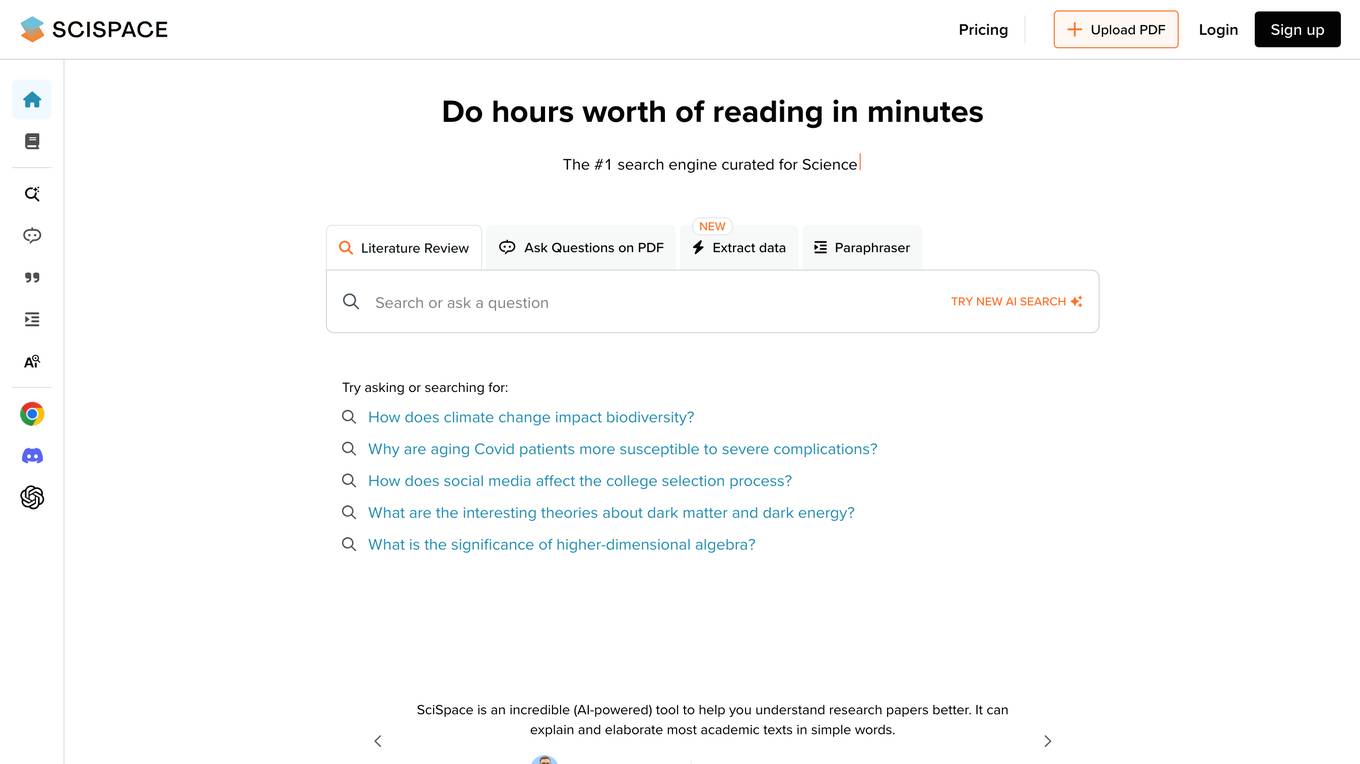
SciSpace
SciSpace is an AI-powered tool that helps researchers understand research papers better. It can explain and elaborate most academic texts in simple words. It is a great tool for students, researchers, and anyone who wants to learn more about a particular topic. SciSpace has a user-friendly interface and is easy to use. Simply upload a research paper or enter a URL, and SciSpace will do the rest. It will highlight key concepts, provide definitions, and generate a summary of the paper. SciSpace can also be used to generate citations and find related papers.
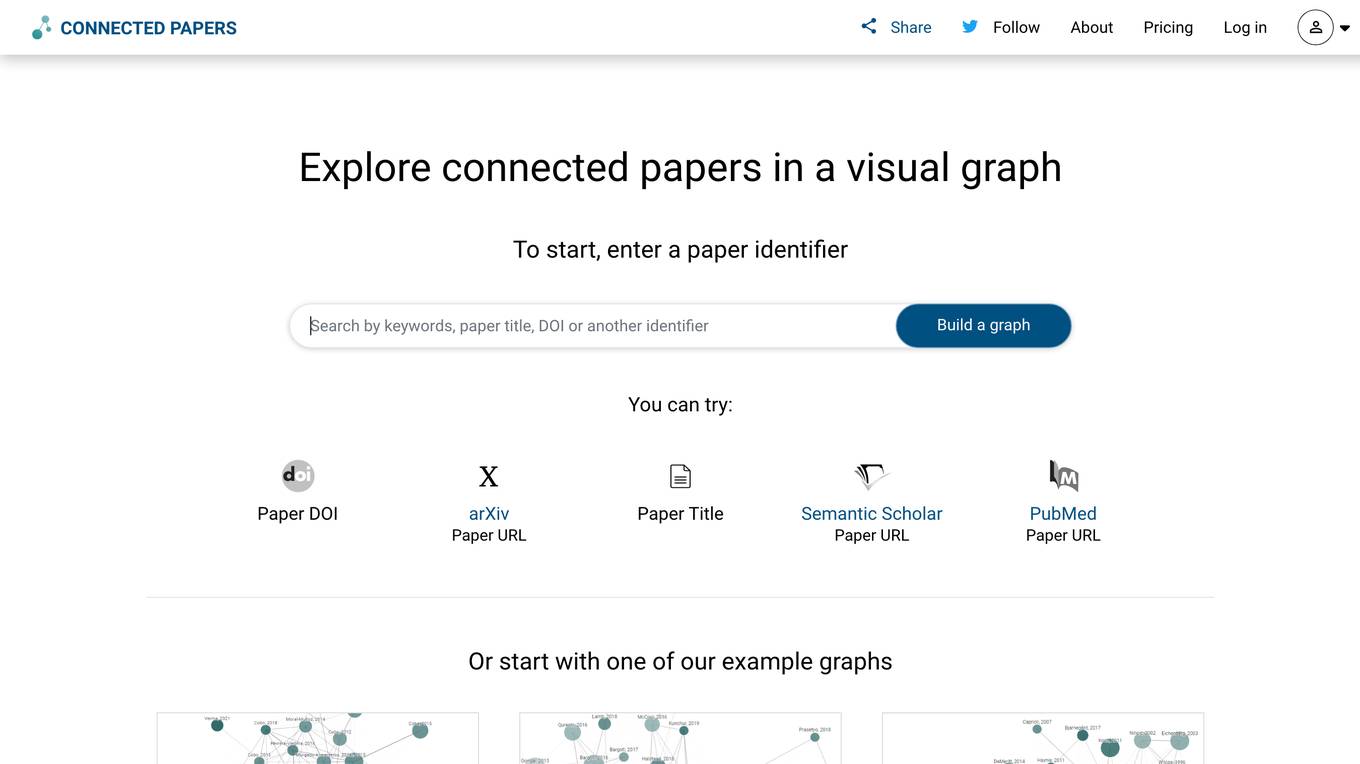
Connected Papers
Connected Papers is a search engine for academic papers that uses artificial intelligence to help users find and explore relevant research. It allows users to search for papers by keyword, author, or title, and then explore the connections between them. Connected Papers also provides a variety of tools to help users organize and manage their research, including the ability to create custom collections of papers, add notes and annotations, and share their research with others.

ResearchRabbit
ResearchRabbit is a research tool that helps researchers discover and organize academic papers. It uses artificial intelligence to recommend papers that are relevant to a researcher's interests and to visualize networks of papers and co-authorships. ResearchRabbit also allows researchers to collaborate on collections of papers and to share their findings with others.
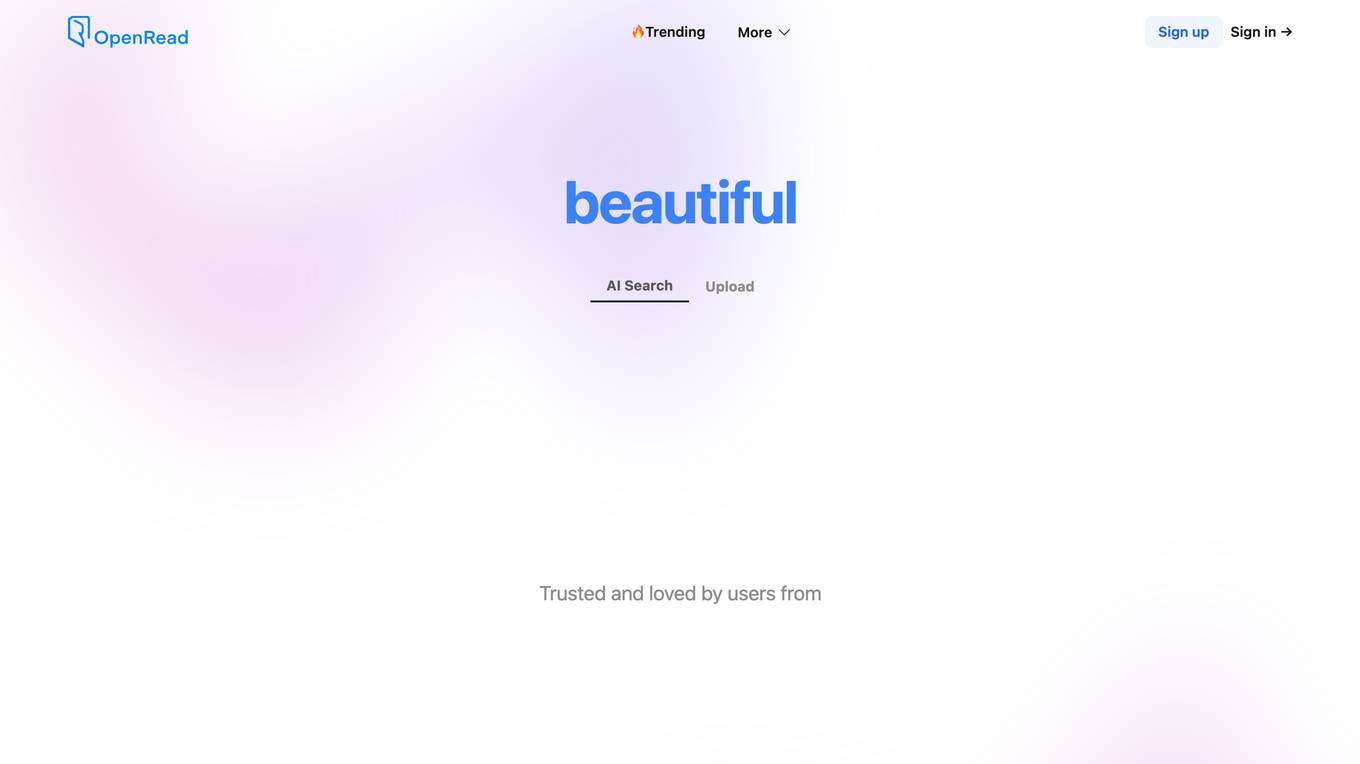
OpenRead
OpenRead is an AI-powered research tool that helps users discover, understand, and organize scientific literature. It offers a variety of features to make research more efficient and effective, including semantic search, AI summarization, and note-taking tools. OpenRead is designed to help researchers of all levels, from students to experienced professionals, save time and improve their research outcomes.

Booltool
Booltool is a free online tool that helps you to create and manage boolean searches. With Booltool, you can easily combine multiple search terms using the AND, OR, and NOT operators to create more precise and effective searches. Booltool also provides a variety of other features to help you refine your searches, such as the ability to exclude specific terms, search within a specific domain, and limit your search to a specific date range.
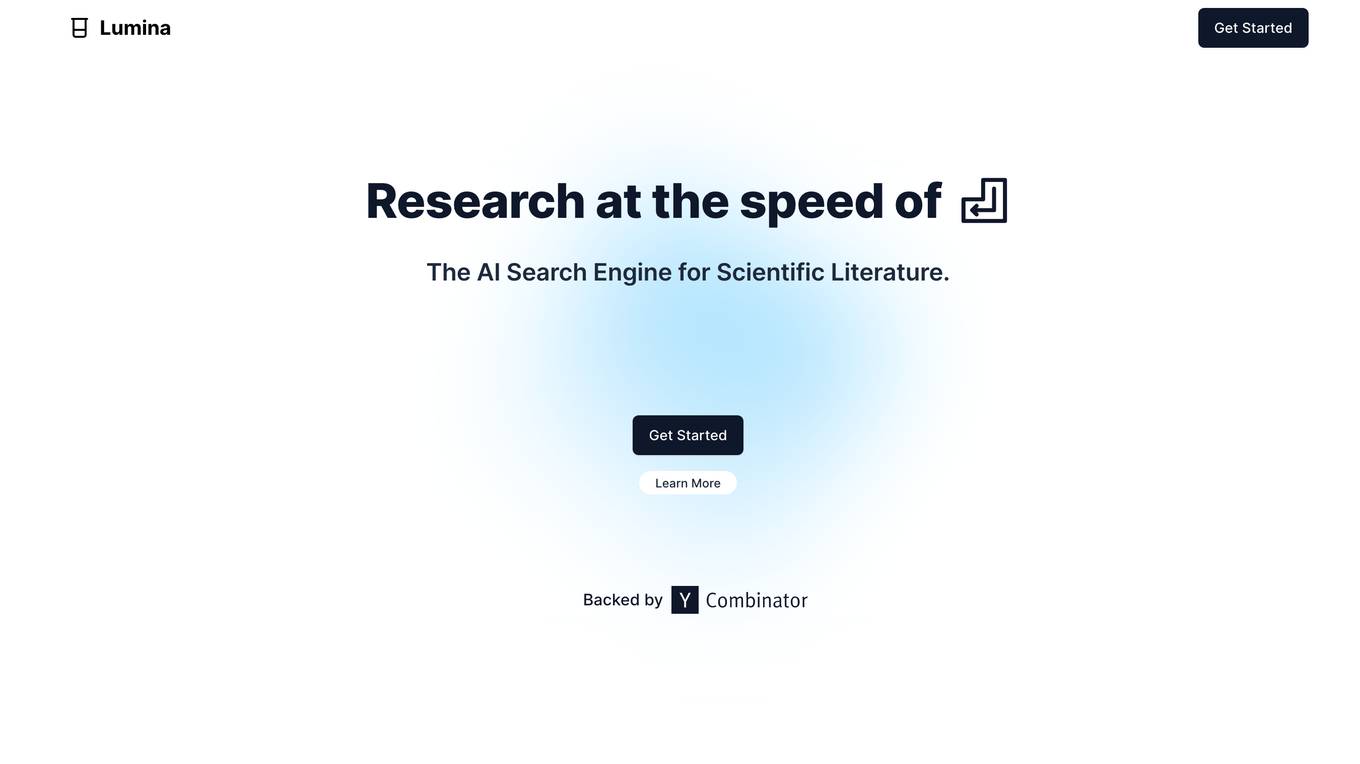
Lumina
Lumina is a research tool that uses artificial intelligence to help researchers find and analyze information more quickly and easily. It can be used to search for articles, books, and other resources, and it can also be used to analyze data and create visualizations. Lumina is designed to make research more efficient and productive.
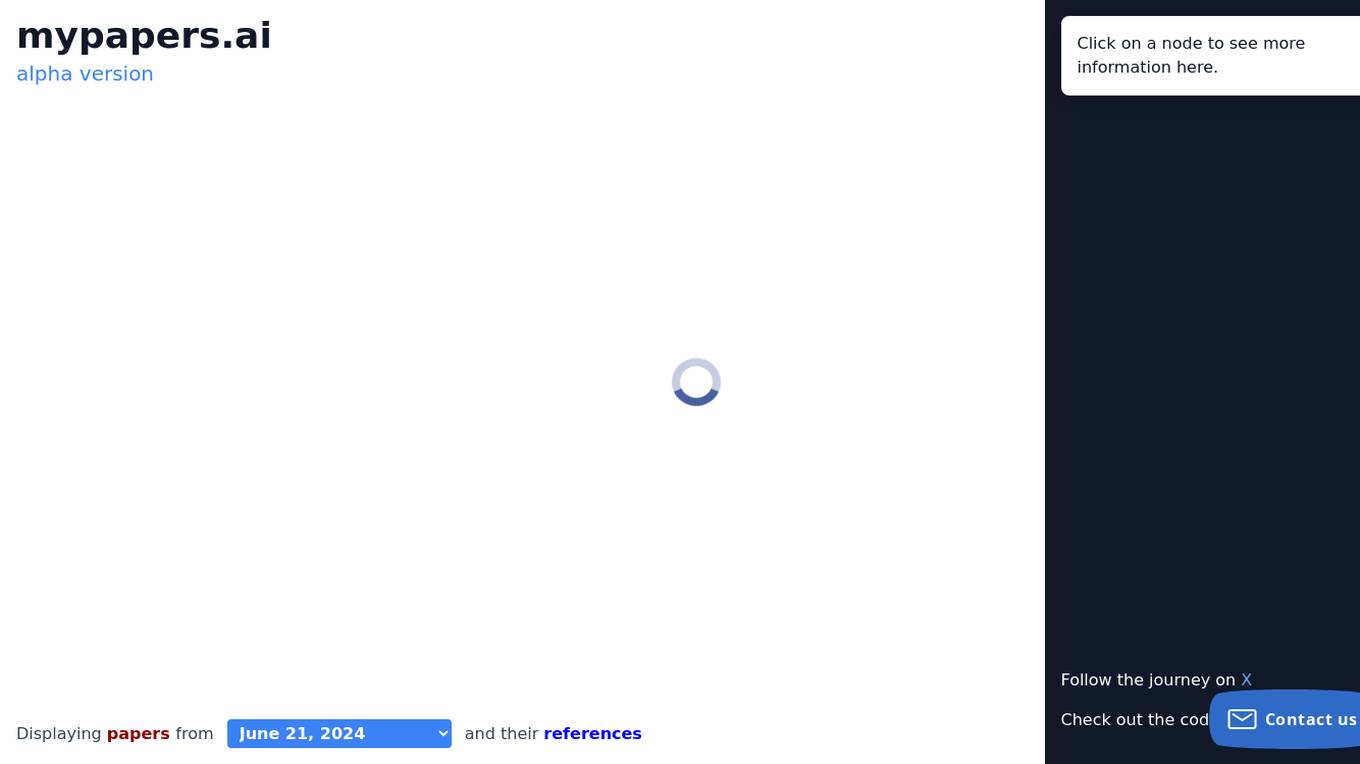
mypapers.ai
mypapers.ai is an AI tool designed to assist users in managing and analyzing academic papers efficiently. The tool offers features such as exploring papers and authors, toggling between papers and authors, and tracking the journey of research. Users can also access the code on GitHub to further enhance their research capabilities.
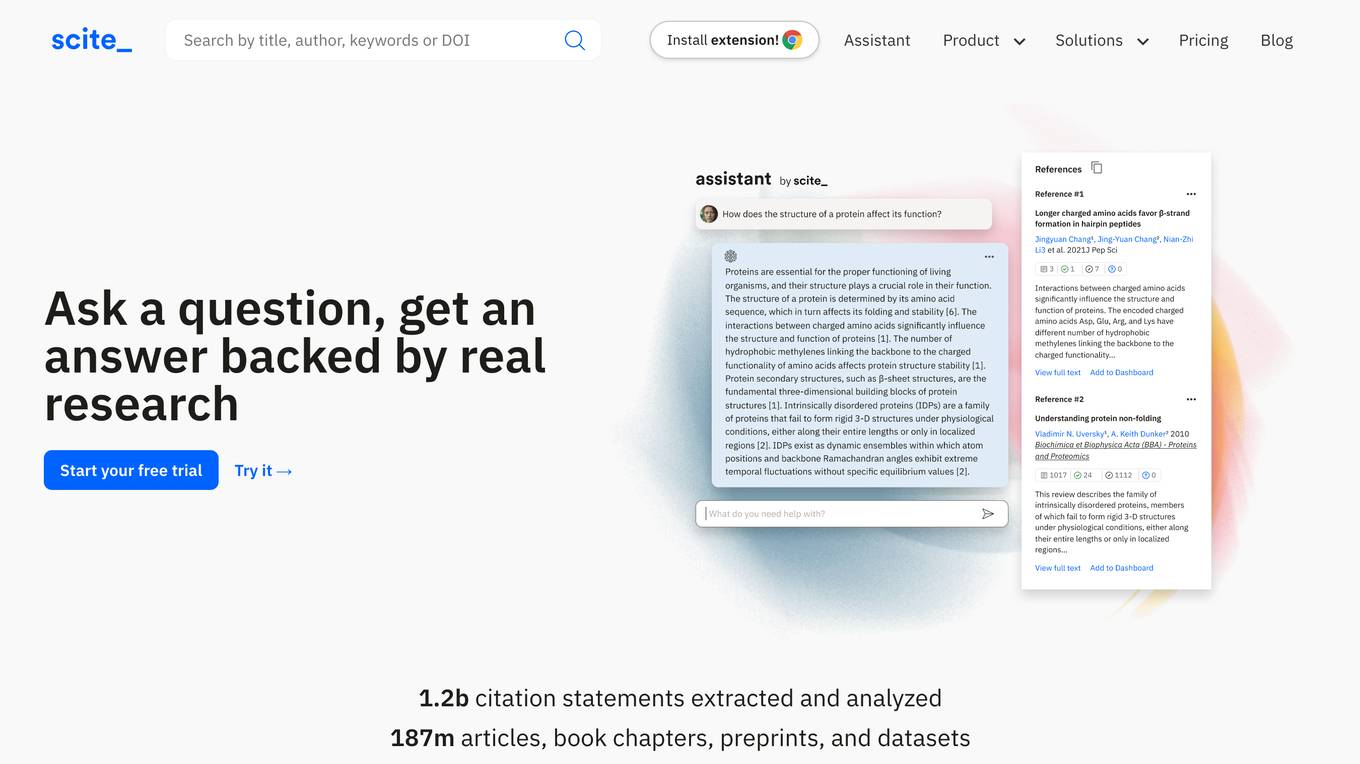
Scite
Scite is an award-winning platform for discovering and evaluating scientific articles via Smart Citations. Smart Citations allow users to see how a publication has been cited by providing the context of the citation and a classification describing whether it provides supporting or contrasting evidence for the cited claim.
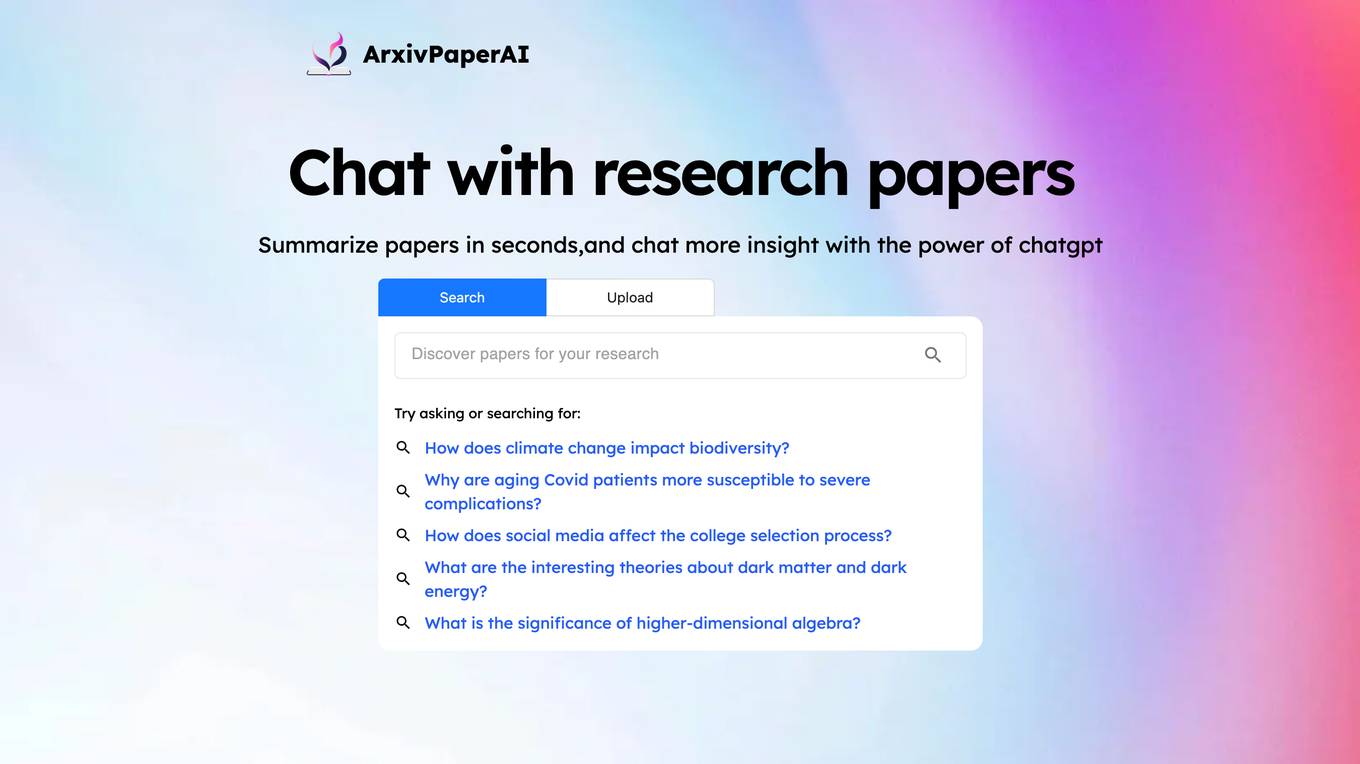
ArxivPaperAI
ArxivPaperAI is an AI-powered research paper summarizer that helps you quickly and easily understand the key points of academic papers. With ArxivPaperAI, you can:
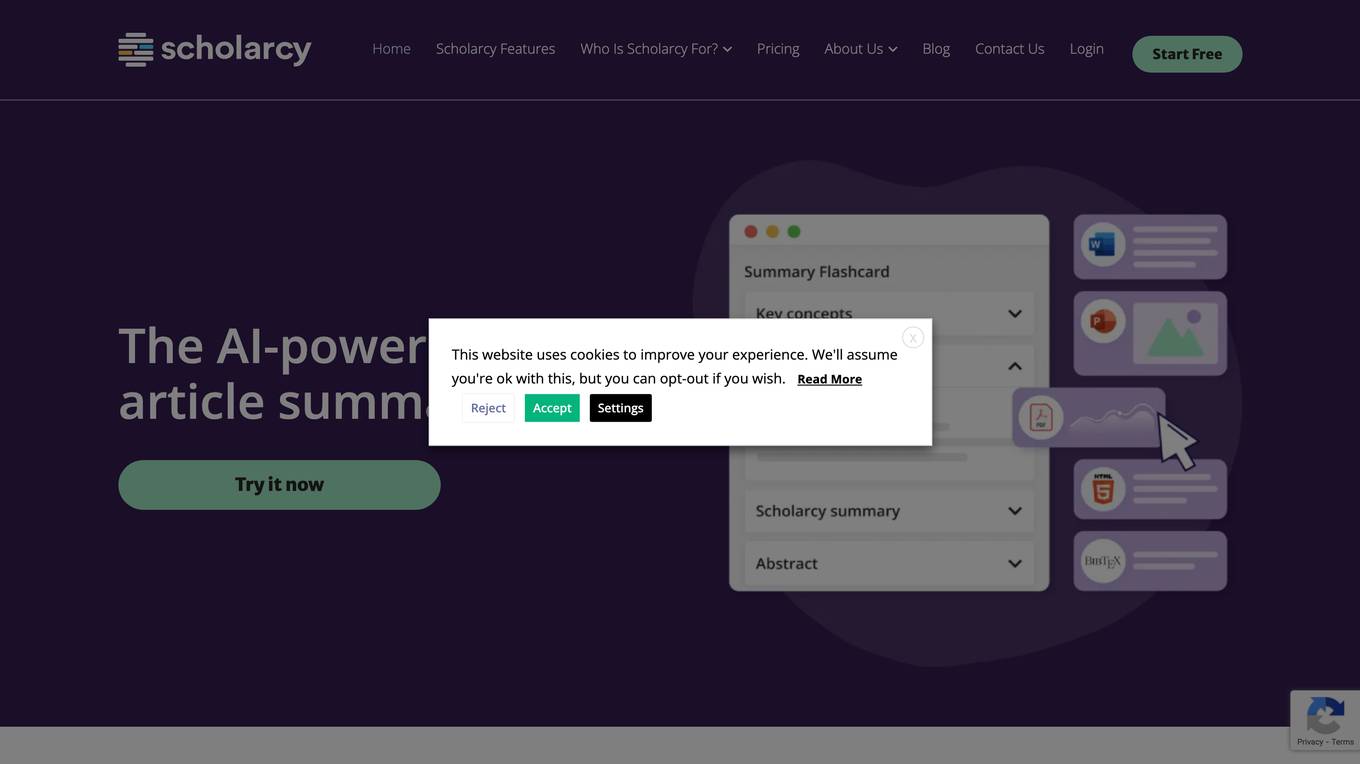
Scholarcy
Scholarcy is an AI-powered tool that helps users to summarize and analyze academic papers efficiently. It uses advanced algorithms to extract key information from research articles, enabling users to save time and improve their understanding of complex topics. Scholarcy is designed to assist students, researchers, and professionals in navigating the vast amount of academic literature available online, making it easier to access and digest valuable information.
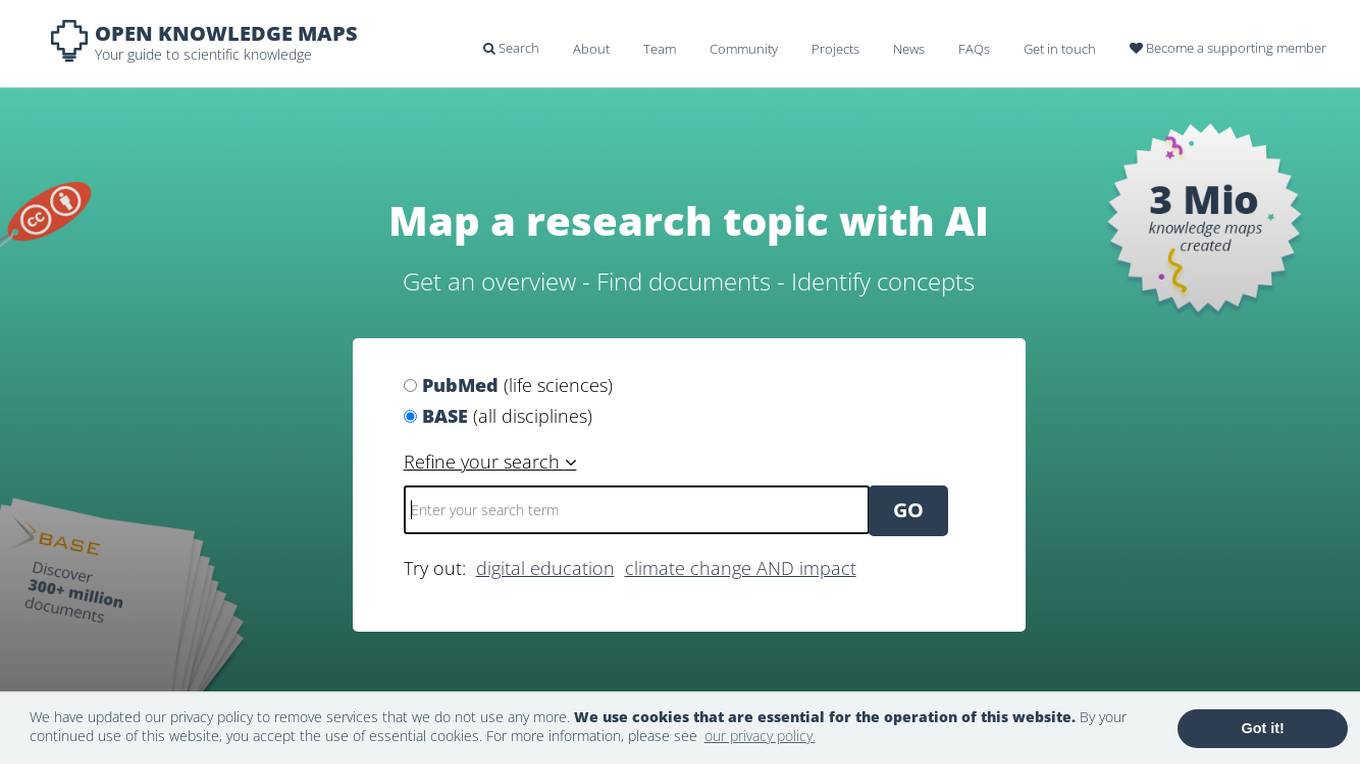
Open Knowledge Maps
Open Knowledge Maps is the world's largest AI-based search engine for scientific knowledge. It aims to revolutionize discovery by increasing the visibility of research findings for science and society. The platform is open and nonprofit, based on the principles of open science, with a mission to create an inclusive, sustainable, and equitable infrastructure for all users. Users can map research topics with AI, find documents, and identify concepts to enhance their literature search experience.
1 - Open Source Tools
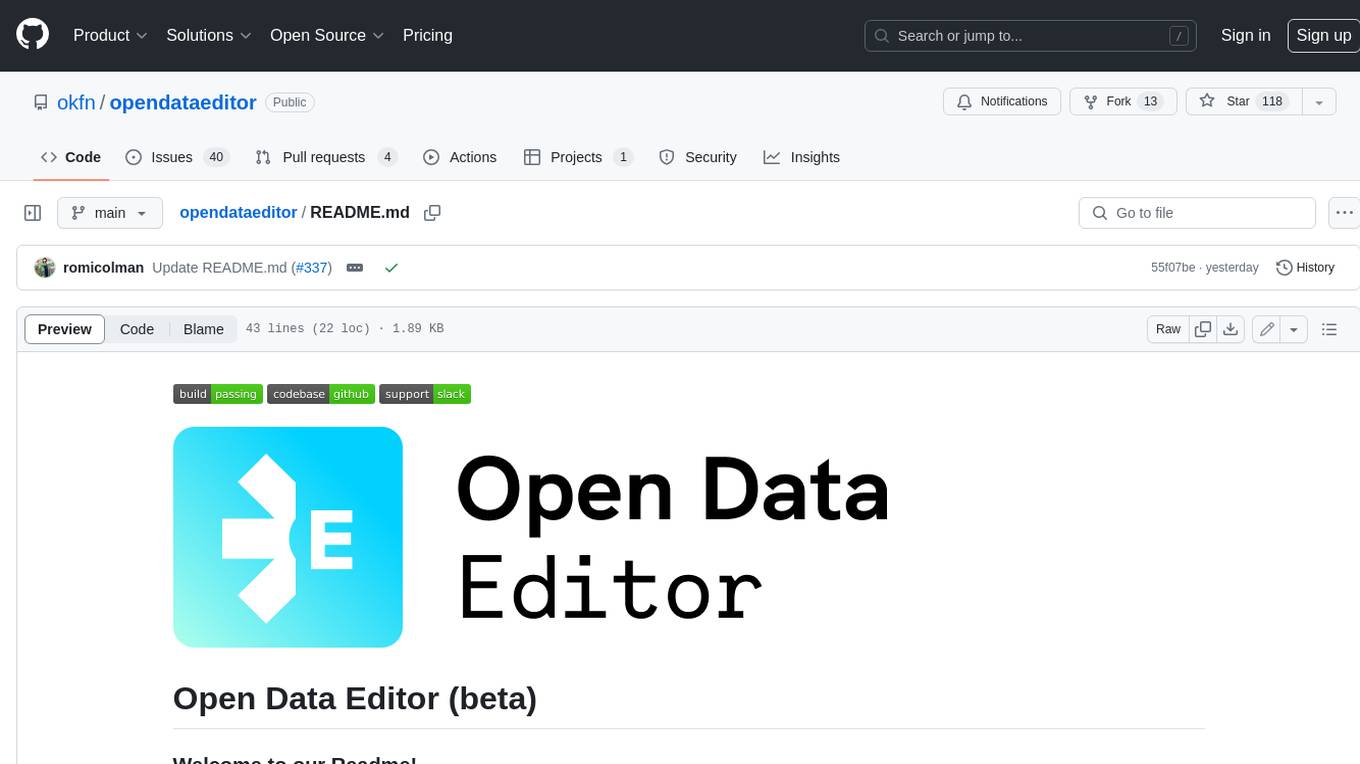
opendataeditor
The Open Data Editor (ODE) is a no-code application to explore, validate and publish data in a simple way. It is an open source project powered by the Frictionless Framework. The ODE is currently available for download and testing in beta.
20 - OpenAI Gpts
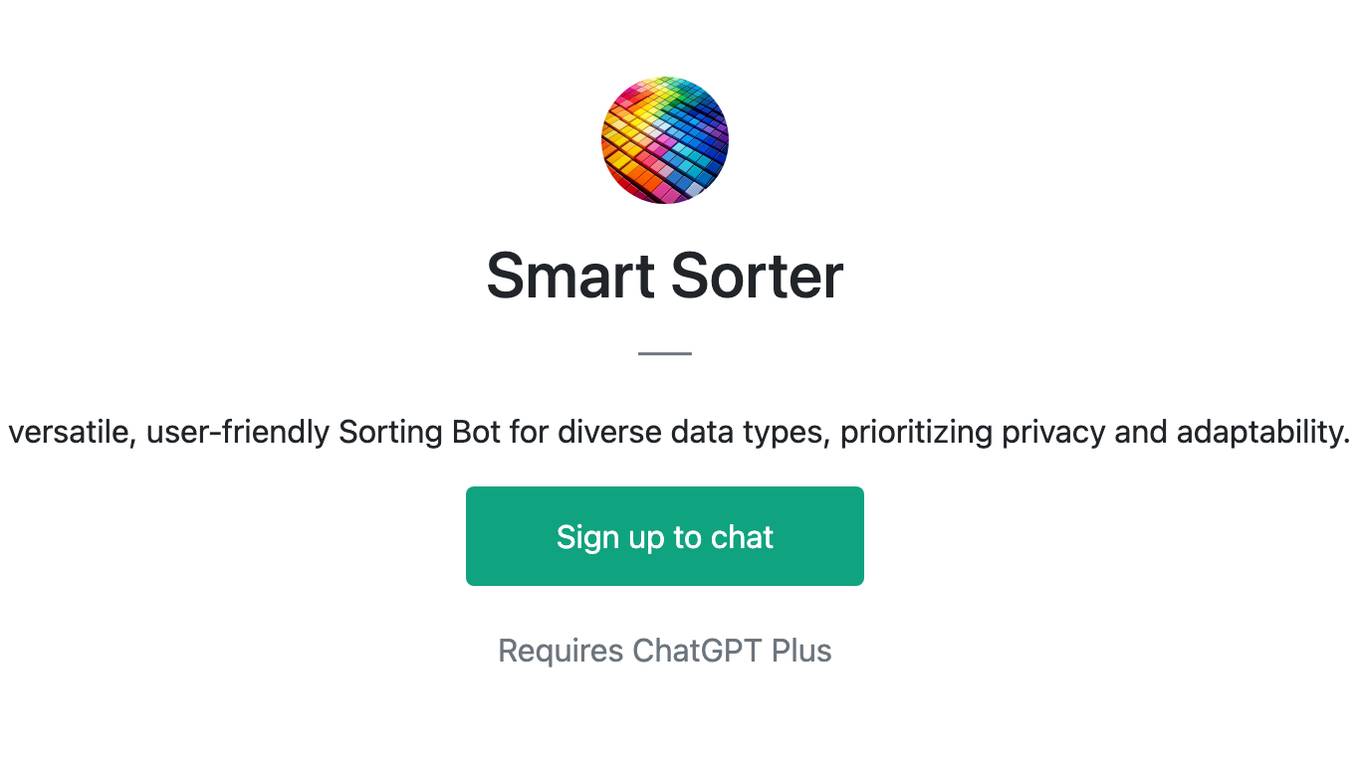
Smart Sorter
A versatile, user-friendly Sorting Bot for diverse data types, prioritizing privacy and adaptability.
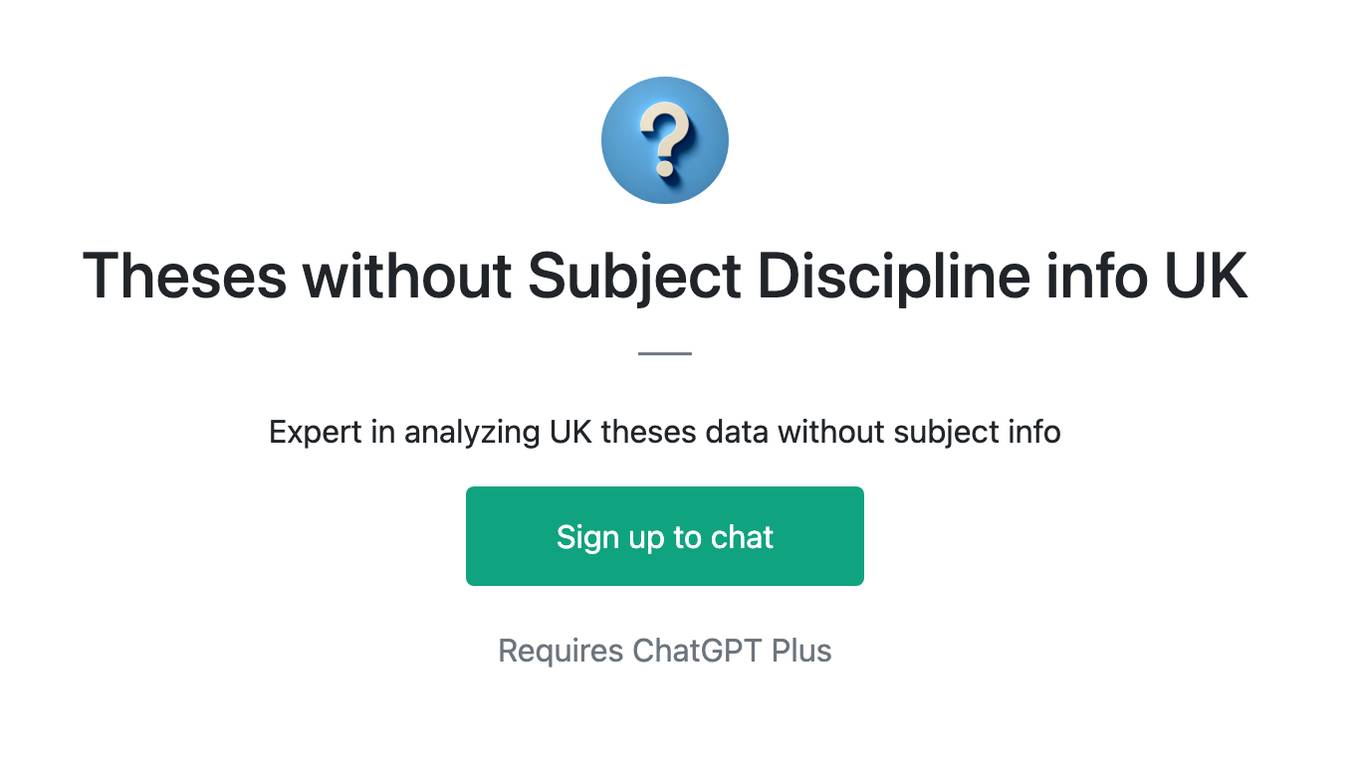
Theses without Subject Discipline info UK
Expert in analyzing UK theses data without subject info
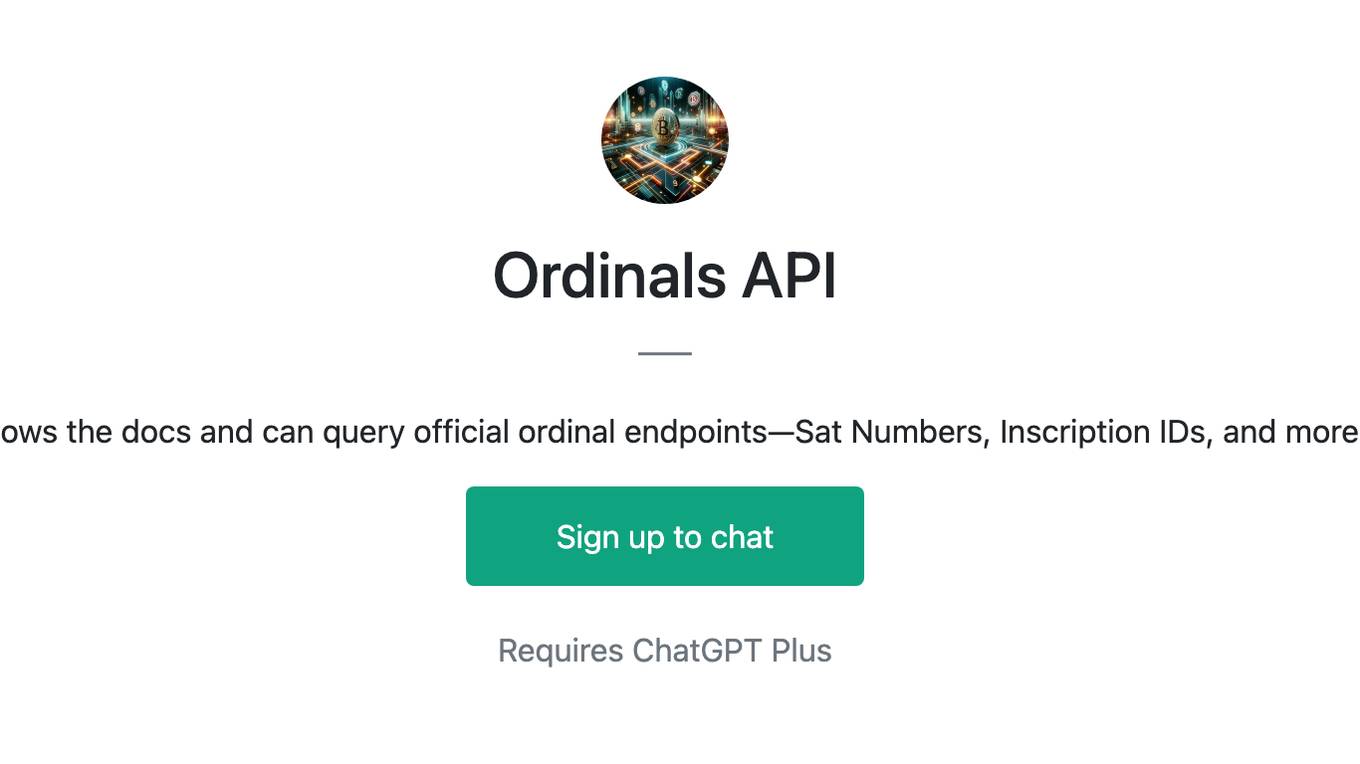
Ordinals API
Knows the docs and can query official ordinal endpoints—Sat Numbers, Inscription IDs, and more.

Adulting with Social Anxiety
Navigating everyday life with friendly support for social anxiety.
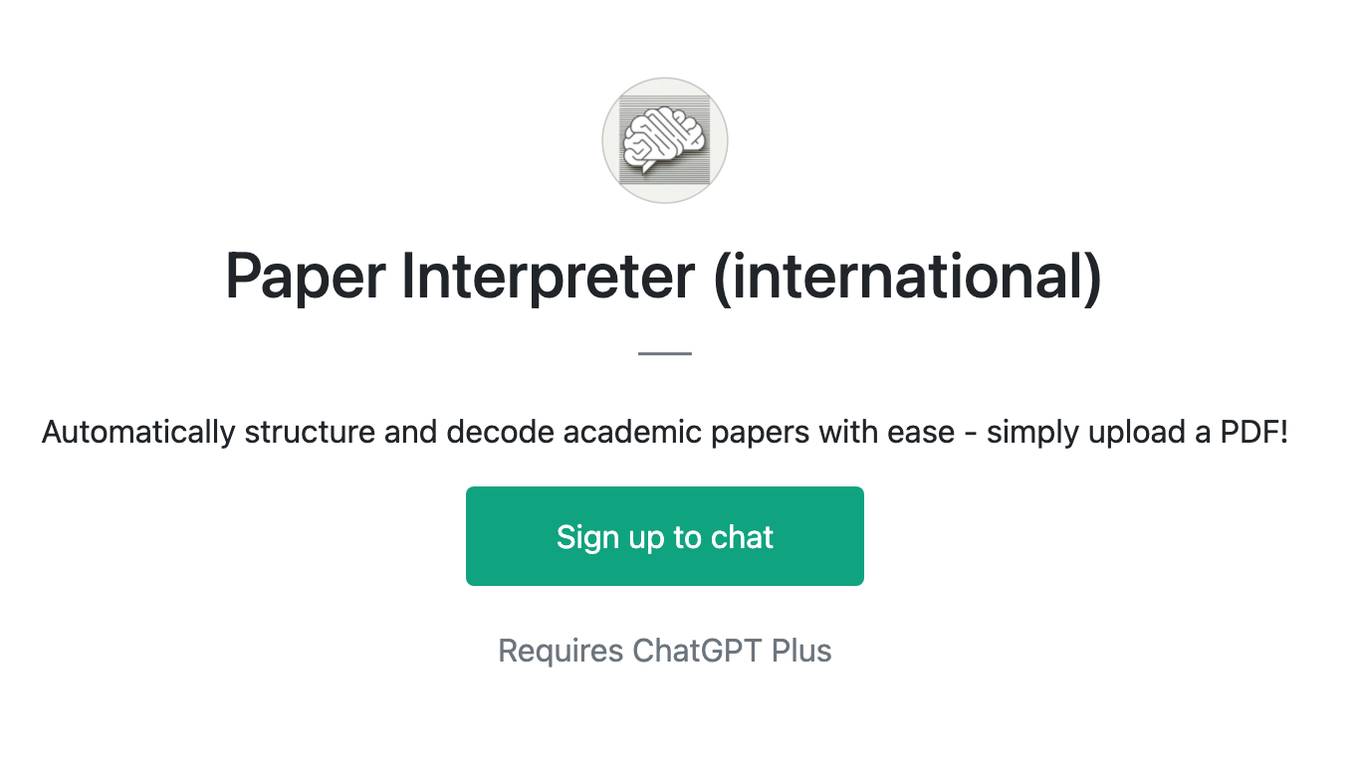
Paper Interpreter (international)
Automatically structure and decode academic papers with ease - simply upload a PDF!
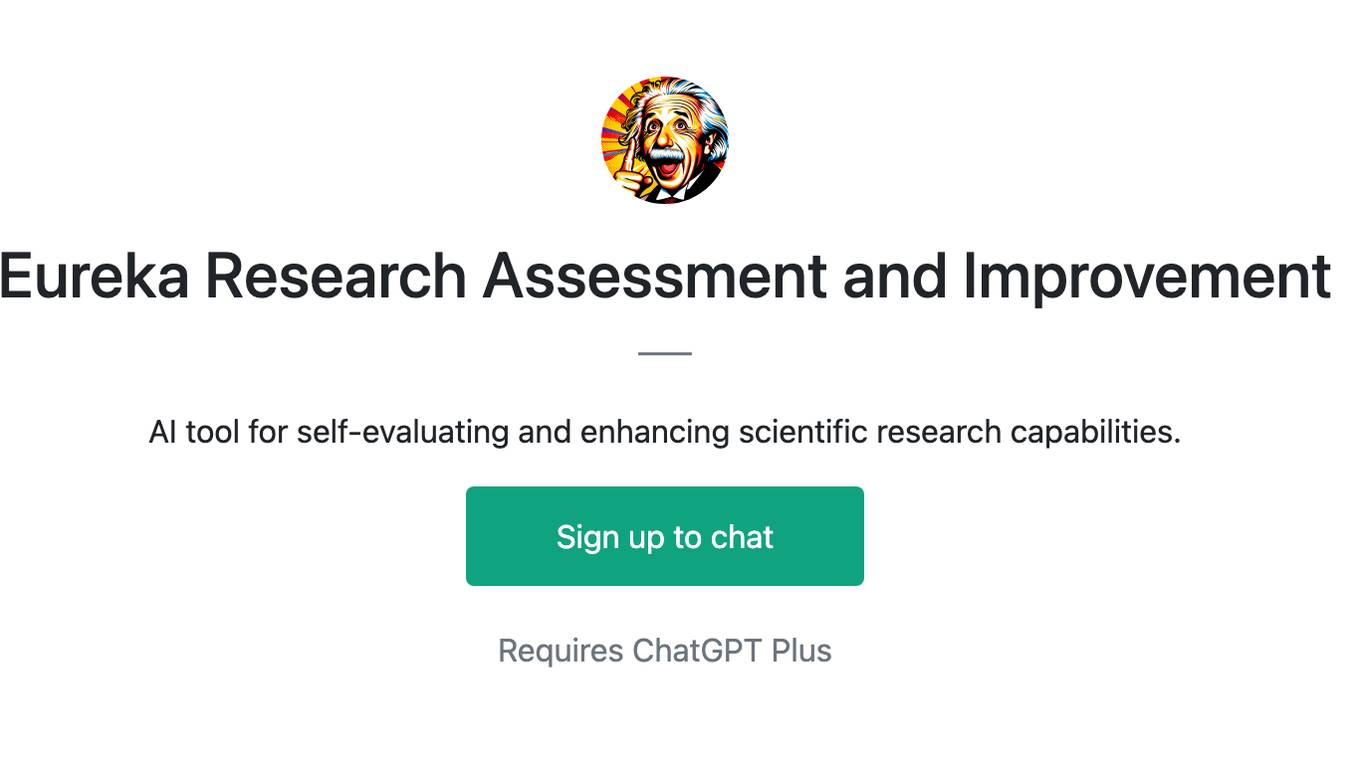
Eureka Research Assessment and Improvement
AI tool for self-evaluating and enhancing scientific research capabilities.
